|
Self-advocacy in relationships is hard for people pleasers. This is true even when we find ourselves in relationships with generally supportive partners. It can be challenging, even scary, to stand up for ourselves, be vulnerable, and clearly (and kindly!) communicate how we feel and what we need. Expressing our needs and feelings in relationships often involves being vulnerable and assertive at the same time: sharing what is hard for us, feeling entitled to receiving support, and asking for it. Self-advocacy also involves letting go of harsh self-criticism. It can be easy for people pleasers to blame ourselves - and get so bogged down in "shame spirals" - that we can't see others' contributions to our struggles, and conversely, ways that they can help. People pleasers also get caught in self-silencing: a blocking of one's expressions, one's voice. Self-silencing is typically motivated by fear. If I express displeasure with something my partner did - Will I be invalidated? Will I upset them? Will they get upset with me? It can feel safer, more comfortable, to just keep quiet. ****************************************************************** An alarm clock blares in Toronto, shortly after the Spring Forward time change. It rings, and rings, and rings. Her nervous system irritated, Shira presses snooze on her partner's alarm. Jonathan, a recovering people pleaser, depends entirely on his alarm to wake up. When his alarm rings again, he leaps out of bed, groggy and miserable. He is going to be late for work. His tired brain begins to be hard on him, criticizing him for being late, despite his years of work cultivating self-compassion. He begins to "shame spiral." Jonathan soon realizes, however, that his darling partner has messed with his system for waking up. "This isn't entirely my fault!" he exclaims to himself. Though this helps, it doesn't eliminate his shame. Recognizing what had happened, his anger spikes; however, this anger is mixed with lingering shame. He angrily demands that his partner not interfere with his alarm clock: "Don't touch my phone!" he growls. Jonathan has found his voice - which is a great achievement for a recovering people pleaser - but it's aggressive! In his mixed state of anger and shame, Jonathan demands, rather than ask assertively. We demand when we feel angry, and that anger is mixed with other emotions that inhibit it: fear - that I won't get what I need, or shame - that I don't entirely deserve it. This inhibiting fear or shame can result in an explosive, attacking anger that covers the healthy assertive anger underneath. Healthy assertive anger comes from a deep, centred, core place. We typically feel a sense of calm and strength when we are expressing it. It is about owning and feeling entitled to what we know we deserve. It is about holding others accountable for boundary violations, big and small. For Jonathan, it might have sounded like a clear, calm, assertive expression like, "Honey, you shut my alarm. I depend on it to wake up. I need you to leave it be." But Jonathan is not yet there at this early morning moment. His anxious rushing, his shame, his grogginess, contribute to his expressing his anger in an explosive and demanding way. Importantly, demanding, despite its obvious pitfalls, represents growth for a recovering people pleaser. Growth toward voicing rather than silencing anger can involve a swing in the opposite direction, toward aggression. Jonathan is not silencing his needs - which is great! - but he is also not bravely and kindly asking for them to be met. Unsurprisingly, Jonathan's demands are ineffective. "No!" Shira retorts. "You can't just let your alarm blare. It's too irritating for me!" Upon hearing Shira's "No", Jonathan's anger heightens, to the point that it is stronger than his shame. He is more fully aware of the fact that Shira has violated his boundaries, and denied him what he needs. He comes to a place where he feels entitled to his anger. Perhaps paradoxically, this helps him feel calmer, more in control. Feeling his anger more fully, he then becomes more in touch with his hurt at not getting the support he has come to expect from his partner. He also notes feeling a bit guilty, which helps him more fully recognize that he has been demanding, not assertive. Jonathan tries again, using his feelings of anger, hurt, and healthy guilt as guides. "I'm really struggling with morning wakeups right now, and you've messed with my system. I've turned to you, not in the best way, but hoping to problem solve, and all I've received from you is a loud NO! That hurts, and I don't deserve that." The pair then proceed to problem solve, and find a compromised solution that ensures a timely wake up for Jonathan without irritating Shira. Expressing our feelings disarms. Sharing pain with caring, responsive people elicits empathy, and anger elicits respect. In difficult relational moments, try answering the following questions: What hurts? What do I need here? What do I deserve? It can be very hard to trust our loved ones with our vulnerability, and our assertive anger. People pleasers often have histories of relationships with people who were not responsive to their feelings and needs. They may wonder: If I express my vulnerability, and ask assertively and kindly for my needs to be met - will my partner or close friend really respond? Will they really be there for me? Even worse, will they get mad at me?! Learning to assert in this way often requires a processing of past relational wounds. A working through of old fear and shame so that it no longer silences us, or on the other hand, makes us aggressive when we wish to be assertive. A recognition that this person standing in front of me is not the same person that could not hear or see me in the past. I am not the same person; I have grown. Whew! It's hard work, experiencing and expressing complex feelings, being a human in connection. Takeaways: When you find yourself having a strong reaction in an interaction with your partner or close friend: Take a pause! Focus inside, with some curiosity. Discover what you are feeling! Or do this after the fact, if doing it in the moment feels inaccessible. Ask yourself: What hurts right now? And what am I not getting that I need, that I deserve? Try to communicate your pain in a vulnerable way, and try to express your anger in a calm and grounded way. Recognize and allow your fear and shame, but see if you can prevent it from silencing you, or conversely, causing you to explode. And, if you do self-silence or explode - see if you can offer yourself some compassion. Of course you self-silence - you are scared! Your growing edge is to find your voice. Of course you explode! Your anger is mixed with shame and/or fear! You don't entirely feel entitled to what you are demanding! Your growing edge is to cultivate a sense of healthy entitlement. Cultivate trust in the people who have proven themselves trustworthy. Trust your feelings to do their job - of eliciting the responsiveness that you need. Expressing sadness and vulnerability evokes care; expressing assertive anger reinforces boundaries and elicits respect. What has helped you to be more assertive in close relationships? How have you moved from self-silencing to finding your voice? How have you shifted from demanding to asking?
1 Comment
I seem to be continuously obsessed with Hygge; with the Danish version of cozy that feels particularly helpful in the winter months. So obsessed, that my blogpost last winter was also about Hygge. What is it, and why do I love it so much? Hygge is the Danish way of valuing life's simple pleasures, cozy experiences. Of tuning into one's body, and one's unique personal preferences, to discover and savour simple experiences that feel ... good! As a mother, a therapist, and a recovering people-pleaser myself, it can be tough at times to maintain a sense that my own comfort, my own simple experiences and pleasures, are important. Are in fact, central: not only to sustaining my ability to care for others but, moreover, to living a day to day life that feels good enough, that has enough of connecting to myself and to my ever-evolving sense of pleasure, comfort, and self-soothing. People-pleasing patterns are coping strategies for a complex mix of core pain: namely, fear and shame. The fear that others will abandon or reject me if I am not pleasing enough, and, relatedly, the shame of feeling not enough just as I am. This fear and shame can create unique barriers for people-pleasers in accessing hygge. They also, I believe, make hygge particularly powerful in creating change, in helping to transform fear into safety and shame into a sense of worthiness and healthy entitlement. For those of us that worry, it can be scary to carve out time for ourselves, outside of revenue-generating activities or care-providing roles. What if we don't have enough time for what we need to do in order to survive, succeed, care-take? Can we really risk indulging in this way? Relatedly, many of us have received messages early on that this kind of self-care, of resting, playing, engaging in simple experiences that delight us, is selfish. That somehow, we don't deserve this kind of time and attention for ourselves, that we should be doing something more productive, or more for others. Enter Hygge. Hygge can be particularly well-suited to comfort our nervous systems when we are scared. This kind of self-soothing asks us to identify experiences that our most comforting to us as individuals, while at the same time having classic experiences that may be particularly hygge. These include lighting candles, enjoying warm drinks, and curling up in an especially cozy corner of the home (hyggekrog aka hygge nook). When we are anxious or distressed in some way, it can be hard, in the moment, to work directly with our thoughts and feelings. Gifting ourselves these kinds of simple, comforting experiences can be a more accessible way to regulate our nervous systems. When thinking about Hygge as self-soothing, I am particularly fond of the kind of Hygge that involves an element of danger, of non-hygge (uhygge), that we have controlled. That's why it feels particularly comforting sit in my hygge nook by the window during a snowstorm. Outside, it is cold, uncomfortable, harsh, and I am inside, safe, cozy, and protected. I feel grateful for my shelter, and gratitude (which is very hygge!) furthers the sense that I am safe. Relatedly, I particularly enjoy warm baths - or even a warm drink - after spending time outside in the cold. In addition to simply feeling good, going from feeling cold and uncomfortable to warm and cozy can foster confidence in one's ability to soothe physical discomfort. This can perhaps bolster confidence in one's ability to self-sooth more generally, which is particularly needed when we are distressed. Hygge can also be particularly helpful for working with the shame that people-pleasers know well, the sense that I am not enough as I am. If, instead of acting from critical voices, I engage in simple pleasurable experiences, I teach myself that I MATTER. That my simple pleasures matter. That my comfort matters. That my body matters. That I am deserving of pleasure and rest. The more we hygge, the more this gets internalized. We come to believe that we are worthy of care, pleasure, rest. We may even find ourselves building lives centering our own well-being, that are more balanced, more worth living! So: join me! Discover your hygge, and weave cozy into these short winter days! Identifying experiences for yourself that feel cozy is a very personal journey. If you are newer to tuning into your own joy and pleasure, I invite you to be especially gentle with yourself. Start small! Hygge is a practice. And it will change over time! Perhaps begin with the more classic hygge experiences and see if they feel good. Light a candle or two, take a warm bath, make a hot cup of cocoa. Watch a cozy TV show with some popcorn. Experiment! Learn what simple experiences make you feel good! And perhaps, ones that don't. That's good information too. You will probably need to try certain things multiple times to know for sure, like a good researcher. Because the ongoing discovery of what makes you feel good is a delight. It is a balm for life's hardships. It is powerful, it is radical, it is worthwhile. Perhaps one of the most worthwhile endeavours for people-pleasers! To re-quote Mary Oliver: You only have to let the soft animal of your body love what it loves. What simple experiences make you feel good?
The ability to feel multiple, conflicting emotions at once is an advanced, but not unattainable, skill. And it can be essential for healing, for wholeness, for experiencing life as it is - in all its complexity. I will explore this notion of mixed feelings and how it relates to those of us who can get stuck in people-pleasing patterns. It's Fall in Toronto, a time that can feel particularly bittersweet, full of conflicting realities. On the one hand, it is a time of abundance. As a hobbyist flower gardener, fall is a time of bounty for me. I have big bouquets of home-grown beauties gracing my tables. Even the plants that I started from seed are finally blooming. Plant stems reach toward the sky, the perfect height for cutting. My joy and excitement rise in parallel. At the same time, the seasonal clock is very much ticking. I am all too aware that within a few weeks, even my strongest fall bloomers will start to fade. Trees are beginning to lose their leaves. While I enjoy the beauty and whimsy of this process, it is, in fact a loss. A loss of the green canopy, a loss of the active growing season. Annuals are beginning to die; perennials will soon go dormant. And so, I feel sad. A sadness that is in some ways hard to hold onto, because it is connected with "anticipatory loss" - loss that is inevitable, but has not yet fully occurred. Like the loss of a loved one who is diagnosed with a terminal illness, prior to their actual demise. How can I grieve summer when I still see so much green? And, more to the point of this post: how can I simultaneously hold in mind and heart these two conflicting realities: of abundance and loss? Joy and sadness? Is it even possible? I think it is. But it is hard! Parenting a newborn is another bittersweet experience that comes to mind, full of moments that were so diametrically mixed for me. I am lying in bed, nursing my newborn to sleep. My body aches, wounded from the strains of pregnancy, childbirth, early parenting. Not to mention the burn of my cracked, pinched nipples. I notice a flare of resentment toward the helpless little being that has caused this pain. I feel helpless myself! I grit my teeth and will myself to bare it just a while longer; you are strong, I say to myself half-heartedly, you can do this. Just moments later, I find myself gazing lovingly at my child. My heart swells, I am head over heels. Bonding hormones surge through me. I could live a lifetime in this place, with this warm, soft, sweet-smelling little body latched on to mine. In singer-songwriter Jack Johnson's words: it's "Just so easy when the whole world fits inside of your arms." If only I weren't in so much pain, I say, I could actually really enjoy this. My pain is totally ruining this for me! Part of me refuses to accept the contradictions of my experience, wanting a more simple one, ideally all joy, all love; I am even willing to accept a narrative of all pain. But I remind myself over and over - Aviva, this is bittersweet. It's supposed to be bittersweet. My hurt, my frustration, my discomfort, can co-exist with my love, my bliss. I don't have to edit out either, I can let it be what it is: a very mixed experience! In my therapy practice, in which I specialize in people-pleasing, I am often working with mixed emotions. An extremely common mix is love and anger. People-pleasers tend to be extremely empathic by nature. They feel the feelings of others in their lives so strongly that they can take over, block and silence their other feelings - like anger and resentment, and their own feelings of hurt. Take the difficult situation of having been mistreated by a significant other - a parent, a romantic partner partner, a good friend. The people-pleasing tendency is to understand, empathize, see the others' pain and vulnerability. And, to stop there. "I could never tell my mom how much she hurt me. It would crush her. She would feel so terrible, she would collapse." There is the sense that one's own feelings - hurt and anger at mistreatment - are themselves hurtful. This can result in a surge of guilt. The people-pleasing tendency then is to self-silence, to edit out one's own truth, in an attempt to protect the other. One is then left with only empathy for the others' experience, without any room for one's own. It's incredibly complex to maintain both feelings of love and anger - even hate - toward another person. In some sense, this ability is the end goal of therapy, a marker of a successful outcome. As the brilliant image below metaphorically depicts, therapy, especially at its outset, is often a process of untangling knotted emotions, and getting to know and experience each feeling on its own. We often start out with mixed experience, but it is a hazy, distressing mix, one that leaves us feeling overwhelmed and confused. Here, we require the clarity that comes from sampling each feeling on its own. The best way that I know of to allow ourselves to feel our mixed feelings - in a way that is clarifying, and not overwhelming - is to first allow ourselves to land fully on each individual feeling. Order doesn't matter. In my therapy practice, I find that it can be most accessible for "people-pleasers" to start first with the other-protective feelings: the love, empathy, even the guilt that is so embedded within people-pleasing. And then, once this love is expressed, it can be easier to allow the anger, the outrage, in the service of self-protection: holding the other accountable for their actions (even if just internally), standing up for oneself. And then, separately, feeling the sadness and pain that stems from having been hurt. Trying to experience the great mix of feelings before really appreciating each individual feeling is kind of like trying to experience the colour purple before developing the capacity to recognize blue and red on their own. Eventually, we learn. We become familiar enough with the contours of our emotions that we can mix the anger, the sadness, the love, and come up with a beautiful mixed experience, one that is not muddled but clarified; something new is born. The ability to experience both love and anger toward a significant other that has caused harm is an emotional superpower. It can feel like a brand new experience, something like soft, dignified pride, or tough, boundaried love. Expressing this new mix of love and anger might sounds something like this: "Mom/partner/friend: I love you so much. I know you are having a hard time, and I care very much. AND - x behaviour of yours is really hurting me. Please stop." Kristen Kneff, a Buddhist-informed psychologist and self-compassion expert, has a lovely exercise she calls "Protective Self-Compassion Break." It was developed for situations in which someone has violated our boundaries in some way, and self-protection is needed. The goal is to help folks feel our self-protective feelings, including anger. This can be particularly helpful for "people-pleasers," who, again, have a tendency to silence their own anger in an attempt to protect others. In the practice, Dr. Kneff invites us to imagine a *mild to moderately upsetting* situation in which our boundaries have been crossed. She invites us to first fully feel our anger. "You're giving yourself full permission to feel the force of... your truth, your anger." And then, once this anger is felt, she reminds us of the truth that "people-pleasers" know all too well: "the person causing the harm is still human." She invites the empathy, the compassion, back in. Not to block the anger, but to mix with it; "See if you can let these fierce and tender energies mingle in your body." It can be so hard for "people-pleasers" to give ourselves full permission to feel the full force of our anger. Our empathy, our guilt, can block us. And then, once we finally learn how to experience and express our anger, it can be tempting to try to push away our empathy. To finally unleash our anger and have it be pure and sharp, unattenuated. It can be extremely challenging, but potentially healing, to eventually also allow our empathy back in, not as erasure, but as another layer, to the complex experience that is living this life. So, an invitation to start experimenting with experiencing mixed emotions. Maybe don't start out with the most distressing or complex experience or relationship; start small - like your feelings as you sip your coffee in the morning. Or how you feel when someone cancels plans last minute: maybe you are understanding, but also irritated! Start off disentangeling the tangeled mass of your experience, so that you can separate out each individual feeling. It may help to talk to someone - a friend, a therapist, or to write it all out. See if you can do justice to each part of your experience on its own. Name each individual feeling; sense how it feels in your body. This in itself is a huge accomplishment! And then, for bonus points: see if you can let your separate feelings mingle back together, like Dr. Kneff describes. So that you can glimpse a sense of wholeness, of the personal power that comes from experiencing more of your full truth.
As a therapist who works with "people-pleasers," it can sometimes feel like I give helping a bad rap. I facilitate an experience where people can refocus on their own feelings and needs, rather than only those of others. As folks progress through therapy, they often end up setting boundaries around their helping. So, it can sometimes feel like I help people help less. At times I need a reminder that helping can be good! Helping, altruism, taking care of each other - it's what makes the world go round. It's what has contributed to our flourishing as a species. It's what allows for relationships, for a sense of family, community, culture, belonging. Being especially skilled at taking care of others is a superpower. Our helpers need to be celebrated, taken care of, paid well. In a Western society that is so focused on individual achievements, we would probably do well refocusing on values of altruism and service. I'm currently reading an interesting parenting book on how to instill the value of helpfulness in children. The author spends time with a number of indigenous cultures around the world and learns from them. To oversimplify: Western parents are too focused on hypereducating and optimally stimulating their children. Other parents around the world hone children's natural helpfulness by teaching them to do developmentally appropriate chores alongside the parent. It's a win-win: a sense of mastery and belonging for the children, and less work for parents! As I've been reading, however, I can't help but think of the stories I hold of children who have been overburdened with helping their parents. Parents who need more than just help with chores. Parents who are unwell physically or emotionally, and have not accessed appropriate adult help. And so, they turn to their children, particularly their most naturally helpful, empathic, gifted children. And these little superheroes become so overburdened that they continue to overburden themselves, and grow up to have underlying anxiety, depression, and profoundly unmet needs of their own. It's a tragic story, and the birth-place of people-pleasing. Clearly, there is some middle ground here - for adults and children alike. For helping that is healthy, age-appropriate, and balanced. Helping that lights up the helper too, not just taps them out. So: how do I know if my helping is healthy or people-please-y? While this work to find balance will look different for everyone, I'd like to provide some guiding questions. Am I strongly motivated by guilt, shame, or fear? While feelings can provide us with critical information about what we need, they can sometimes do just the opposite. People-pleasers who have historically been overburdened by helping tend to have an excess of guilt, shame, or fear that isn't really giving us good information. If any of these feelings are the strongest motivators for helping in a given situation, it might be a sign that you are being pulled into your old patterns. Am I taking too much responsibility for other's pain? Relatedly, I might be pulled to help because I am scared or concerned that without me, the other can't help themselves. Often, the antedote to over-giving, fixing, rescuing, is remembering that the other person has their own power and agency; the dignity of their own strengths and choices. Ask yourself - what are this person's strengths? What are the ways that they are surviving well enough without me? Cultivate trust in others' self-care capacities. You cannot be fully responsible for that which you do not control. Repeat after me: I am not responsible for others' pain. Am I Over-Extending Myself? Am I giving way more than I have to give? If so, I may be replaying out my past of being a child burdened with adult responsibilities that were just too much. Healthy giving looks like giving from our bounty, not scarcity. Some of us have learned from a very young age, whether from gender norms, family, culture, or religion, to value self-sacrifice. To give of our meager scraps. When we do this, we quickly become resentful, we burn out, we cannot sustain our generosity. To be a healthy helper, pour into your own cup until it overflows, and then share of the overflow. Then you will really be giving with an open heart. Is there some sense of balance or mutuality? While the notion of tit-for-tat giving can feel soul-less, it might have some usefulness for countering people-pleasing. Are you giving and giving and giving in a relationship but not getting anything back? Perhaps you are in a helping role at work - giving and giving - and you are not being given the recognition and salary that you deserve. On the flip side, perhaps you are very generous, but you do get back some good stuff; perhaps you feel really good about the work that you do, it boosts your self-esteem, others are grateful. To offer a nature metaphor - let's aim for symbiotic relationships, rather than parasitic ones. It's just about summer in Toronto. The bees are buzzing about, seeking flowering plants for their nectar. While drinking their fill, pollen sticks to their fuzzy legs, and in time reaches new flowers. The pollinators get food, the flowers get to reproduce. WIN-WIN. How do you know when you are people-pleasing or healthily helping?
Spring is here in Toronto, thank goodness! We have been redeemed from a pandemic winter! For some of us, this also means Passover season, when we play with themes of slavery and freedom. People-pleasing is a kind of slavery. It is the tireless overworking to make others feel comfortable while you sweat and hide your tears. It is the contorting of one's face into a smile to keep others happy while locking away one's true self-expression. The fear-based attempts to keep people liking us so that they keep us around. The onslaught of self-doubt and self-analysis to make sure we are "good enough," pleasing enough. People-pleasing turns everyone else into our "masters," our slave drivers. It demands a great deal of mental and emotional labour. It is exhausting, painful. Healing from people-pleasing can be thought of as a return to one's ego and healthy narcissim. The notion that, by virtue of being alive on this earth, I am worthy. I don't need to hustle for my worth, prove it, build big back-breaking pyramids to the Pharaohs in order to matter. Don't need to bend over backwards, contorting myself to the needs and feelings of others, to earn my daily bread. We are all a whole world unto ourselves, dignified, deserving, beautiful, powerful, just as we are. Bread is also a big Passover theme, and in fact relates symbolically to the tension between healthy vs. unhealthy narcissism. In many ways, "people-pleasers" are not narcissistic enough. They are too humble - self-sacrificing, apologetic, self-silencing. As explored above, healing can come from reconnecting with our inner power and sense of unconditional worthiness. At the same time, we can look at the problem as actually having an inflated ego - an inflated sense of responsibility over the pain and lives of others. People-pleasing is about believing that we have the responsibility - and thus the ability - to rescue others, liberate them, ensure their safety and well-being. It is the belief of power over others, over their circumstances. This weight of responsibility exaggerates our actual realm of control and power, just as yeast inflates dough. As psychotherapist Estelle Frankel teaches in her book Sacred Therapy, humility is a spiritual resource that can help with this over-inflated sense of responsibility. We can't control others or save them or heal them. I can't, you can't. Sure, we can offer help, but we can't control whether it is received. Ultimately, we're all just flat bread: flawed, small humans, with temporary existences and with very limited power. We can only truly liberate ourselves. This is true even for me as I reflect on my work as a therapist. I can only facilitate a process, but you do much of the work. If I forget about your agency and your strength and convince myself that I alone am responsible to save you from your pain, I am in big trouble. Paradoxically, the more I humble myself, remind myself that my role in your life is actually quite limited, the less pressure I put on myself, the calmer I feel, the more helpful I actually am. Takeaways: when your People-Pleasing Voice arises, and you find yourself feeling excessively guilty, or trying too hard to help someone else, or putting too much pressure on yourself: Find your humility! Recognize the limits of your ability to actually impact another's life. Recognize that you are allowed to be an imperfect human being, who can't always get it "right." Tell yourself - I literally don't have the power to be everything to everyone. I'm just one small person, a brief moment on Earth. This can be so freeing, can help us relax. Help us exhale, take in a fuller breath of Spring air. Can help us let go of the huge weight of responsibility, the tons of bricks. Sorry Pharoah - I'm just not strong enough to build you a Pyramid today!
Helping takes a toll on the nervous system. Whether you are parenting, supporting a family member or friend, or working in the healthcare industry; undoubtedly, acts of service deplete us. This is especially the case when we struggle with setting limits on our compassion. We may know, intellectually, that compassion is not a renewable resource. That we must cap it - and take some back for ourselves - if we are to sustain it. And yet. For so many of us, when we set the boundaries that we so fundamentally need, we feel guilty. This guilt is an old guilt, a memory of past wounding. It is not giving us any helpful information about our current reality. It is It is a guilt that can invade any time we do take aside for ourselves. We may sometimes choose to allow ourselves to experience and move through this guilt, such as when in therapy. Typically, however, we benefit from simply toning it down. To ensure that it does not control us, our experience, our behaviour. Rob us of our ability to care for ourselves. Enter Hygge. Hygge is a Danish way of life that is all about enjoying life's simple pleasures. It perhaps explains why the Danes consistently rank number one in happiness rankings. Hygge asks people to tune into what they subjectively experience as pleasurable - and to set aside time to engage in pleasurable activities. It provides a lovely counterpoint to a compulsive helper mentality: conditioning self-worth on one's usefulness to other people or causes. Many compulsive helpers struggle in identifying activities or experiences they find pleasurable. This is because we have dedicated so much of our energy over time helping others or being productive. Asking ourselves what brings us pleasure is new! It can be overwhelming, especially if we think too big, too fast. Hygge breaks this down for us. What scents do you enjoy? What simple activities get your blood flowing? What makes you feel cozy? What connects you to your body, to nature? For me, lately, this has involved playing a crackling fireplace on a screen, lighting scented candles, baking simple treats. A hot bath after spending time outside, gazing at naked trees, Christmas lights, patterns in the snow. Cozy TV paired with self-massage. Importantly, Hygge isn't just about refreshing so that we can resume slogging away for others. It is culturally valued for it's own sake. If we could only internalize this - that our simple, everyday pleasures, are inherently valuable. Not just as ways to keep us going, doing, producing, helping. Practicing Hygge can be a neat way to enact this paradigm shift, reinforce this core belief - that our experiences matter - for their own sake. Small children intuitively know this, as do animals. They operate on the basic assumption that feeling good - delighting in a back rub, a tickle, yummy food, a fun game - is what life is all about. Hygge can be a path toward living a life that feels good, rather than a life that only looks good. Simple pleasures are also an excellent way to reconnect to our True Selves, to what makes us come alive. What would it be like, if we valued our own experience of simple pleasures as much as we value external markers of success or service? To quote American poet Mary Oliver: You do not have to be good. You do not have to walk on your knees for a hundred miles through the desert repenting. You only have to let the soft animal of your body love what it loves. Most of us helpers have focused way too hard for way too long on being "good." Good for others, good for the world, maybe even good for ourselves, but in a harsh and overwhelming way. What would it be like to let ourselves connect with our simple pleasures, and then say - Yes! This matters! This, too, is good! For some more specific ideas on bringing more Hygge into your life, check out this post by another psychotherapist. Have a Hygge New Year! If you enjoyed this post, follow me on Facebook to catch the next one. If you want to learn more about how we can work together for psychotherapy, contact me for a 15 minute no-cost consultation.
It is true. Winter is coming! AHHHH! I don’t really know anyone who isn’t at least vaguely anxious about this right now. In a time when the usual uncertainty of life is magnified, and our biggest lifeline for connection and company - outside gatherings - is becoming less and less accessible. To be blunt: if we weren’t anxious about this, we’d be dead. Because every human alive experiences anxiety. We have evolved with anxiety to signal challenges ahead. To fight or flee the bear. Coronavirus is a real threat to our physical health, social isolation is a real threat to our mental health. To be anxious about these threats can be very reasonable and adaptive. Anxiety can increase our energy and help us prepare, problem solve, cope ahead. But what about when our anxiety is too high, or is more of a constant simmering, a background buzz, that doesn’t seem to give us helpful information about what is coming or what we need to stay safe? How can we understand this kind of anxiety? Understanding Anxiety In Emotion Focused Therapy (EFT) literature, generalized anxiety can be thought of as a form of coping. Not the most sustainable form of coping persay, and not necessary coping that we are conscious of. Still, this kind of anxiety serves a function: to ward off painful feelings. Generalized anxiety is born from old wounds, likely from childhood, when we felt unsafe and were not adequately protected or supported. Emotional injuries, just like physical injuries, need to heal; otherwise, they will continue to cause us problems. If our emotional wounds are not processed, not worked through, they are easily triggered in our day to day. Then we go right back there - right back to the old wounded states of fear, shame, pain and sadness. Back to the despair and helplessness of not getting adequate emotional support when we needed it. So, our old wounds get triggered. The triggers usually happen outside of our awareness. Painful emotions like fear or pain threaten to emerge. And then, deep down, we get terrified, whether consciously or not, that we won’t be able to handle these feelings, that we will lose our minds, break down, become undone. Enter Anxiety. Anxiety redirects our energy into worrying - rather than feeling our old, emerging pain. Anything but that. This kind of generalized anxiety also aims to protect us from ever experiencing anything in the future that remotely resembles the hard stuff that we’ve endured in the past. That’s why the anxiety is so compelling: we believe it’s going to protect us, keep us safe in the case of future threat. Make 100% sure that there is no possibility of anything bad happening. Of course, the anxiety itself can be excruciatingly painful; perhaps just as painful as the old wounds themselves. To review this understanding of generalized anxiety: something, we may not be sure what, triggers our old unresolved wounds, pain that remains unprocessed, unspoken, unfelt. And so we worry to distract ourselves and to try to make sure we are not hurt again. This is a lot of theoretical mumbo jumbo, you may say. How does this information help us work with our anxiety when it arises? Allowing and Working with Anxiety First and foremost, it can help us to allow our anxiety when it arises. To be more accepting of it, rather than fighting it. More self-compassionate, rather than shaming ourselves for feeling anxious. Most of us fight our anxiety with all our might; we say - “oh no, not again! I can’t possibly bear this anxiety! I must defeat it! I must make it go away. I can’t believe I’m still dealing with this! How terrible! I must really be nuts!” What if, instead, we were sometimes able to recognize our anxiety for what it is - an effort - albeit misguided - to protect us, keep us safe, in the context of feeling unsafe in the past. Like an inner over-protective parent. What if we said to our Anxiety instead - “hey Anxiety! You are here. That’s ok! I see how hard you are working here to protect me, to keep me safe!” Maybe you then experiment with some respect, or even gratitude - “hey Anxiety - thanks for looking out for me!” Or maybe this feels too far. See what resonates for you.
Try saying to your anxiety - “yes, I get it, I get why you are working so hard, to warn me of all the possible dangers ahead. Because yes, we really were vulnerable in the past. Things really were scary back then!” Maybe this unlocks some glimmer of strength. Some glimmer of anger - of - “Hey Anxiety - this really isn’t helping me, despite your good intentions! Your constant worry is excruciating, and exhausting! Please STOP!” And maybe you go even further - “Please, Anxiety, let me feel my feelings - because I am strong enough to feel my hard feelings, at least sometimes. I can feel sad, ashamed, scared, and it won’t kill me! “And actually, Anxiety, when I feel these things, I don’t need you to scare me. I need support from others - and from myself!” It is easiest to experiment with relating to our anxiety in this way when it is less intense. When it gets stronger, we may need to find other ways to cope. If you feel overwhelmed, please reach into your coping toolbox and engage in self-soothing behaviours that work for you: sip a hot chocolate, take a bath, light a candle. Watch your favorite TV show. Reach out for support to someone who can help. In truth, the most effective way to work with high anxiety is in the presence of a skilled loved one or therapist. Because, again, anxiety is born from old wounds. And old wounds are healed by being felt, in the presence of a compassionate other, and the most compassionate parts of ourselves. Because working with it alone - or with someone who actually makes it worse - can definitely make us spiral. Back into old vulnerable states of feeling so unprotected and alone. Because for anxiety to ease up, it needs to learn - and relearn - that we do have enough strength and support - from ourselves and from others - to cope with life and with our feelings. So yes, winter is coming. And it makes sense that we’re all anxious about it. See if you can offer your Anxiety some acceptance and validation. “Yes Anxiety, it’s ok that you are here! It makes total sense!” Maybe you stop there, for now. Or maybe, when the timing is right, you ask your Anxiety to shed a little light onto the hard feelings that are coming up, that anxiety is trying to protect you from. Tell your anxiety that you are strong enough, self-compassionate enough, to dip into some of your underlying hard feelings. Remind your anxiety that you can dip back out if it feels overwhelming. Begin to cultivate trust that you are sowing seeds for your own growth and healing. If you are a human who lives or interacts with other humans, alive right now during this pandemic, reading this blog post, you could probably use stronger boundaries. Boundary work can be hard and challenging. And - what a better time than approaching Fall in Toronto for a fresh, renewed, perhaps different way of thinking about and working with our boundaries! As I am sure you have noticed, our roles are so enmeshed these days. For many of us, our roles as Worker, Parent, Roommate, etc., are all relegated to a single space. Although folks have been super creative with ways to demarcate space in the home, there are no natural transitions - boundaries - as there were in our prior lives. Or perhaps, you live alone, and are connected with a friend who is struggling right now, as many are. Perhaps you really want to help, but this friend needs more than you have to offer. If we are not careful, we may get caught up trying to be everything to everyone all at once, during trying times. What a recipe for burn out! So how do we know when our boundaries are stretched too far? Often our best cue is our internal experience, particularly our Anger. Anger - and its various flavours of resentment, irritation, etc. - is our internal cue that there is something unfair, not right, going on, that we are not getting our needs met, that our boundaries are being penetrated. Perhaps you are giving more than you are receiving, for instance. Folks I work with tend to have complex relationships with their Anger, which makes it really tough to greet Anger as the useful signal that it is, and to use it as a cue to assert boundaries. Perhaps you have seen Anger turn into attack, perhaps you've learned then that anger must be hurtful, and so have worked hard to distance yourself - perhaps unconsciously - from your own Anger. It can help to differentiate Feeling from Action. The problem with aggression and attack is the aggression and attack - the behaviour - NOT the internal feeling of anger. The problem with distancing oneself from one's authentic feelings is that: 1. You lose valuable information - i.e. that I am not getting my needs met, or something is unfair or unbalanced here, and 2. The feelings end up being expressed anyway in unexpected or uncontrolled ways. Because feelings have their own life force, and they will be heard and voiced eventually; they cannot be supressed forever. I often witness folks working hard to suppress their anger, avoiding their own unmet needs in a (perhaps unconscious) effort to meet others' needs or gain approval, only to later explode (and then feel shame and regret). The explosion is just a symptom. The root problem here isn't the explosion, it's the ongoing suppression of anger and the inability to greet it as valuable and then to channel it into asserting boundaries. The other problem people who struggle with compulsive helping tend to have with using their anger as a cue to assert better boundaries is that when they do, they feel guilty. And so, they avoid their anger and setting healthy boundaries so as to avoid this uncomfortable guilty feeling. The thing is, this Guilt is probably NOT actually providing you with valuable information. It is likely just an old, backlash feeling. The task then becomes tolerating the guilt, allowing the anger, and setting the boundary anyway. Because the thing about healthy assertive anger and good boundaries is that they don't hurt relationships. They sustain them. A personal example from my work: I have policy in which clients are asked to cover the cost of the session upon cancelling with less than 48 hours notice. I do offer case by case exceptions in cases of emergency and illness. When clients cancel in less than 48 hours notice with no illness or emergency, I find myself slightly irritated - a version of anger. Were it not for this boundary - my policy - this irritation might fester within me, and accordingly, within the therapeutic relationship, perhaps unconsciously, and potentially hurt the work we are doing. The boundary helps me get what I need (predictable schedule, protection against lost income, etc.), reduces my feelings of anger because my need gets met, and then protects the therapeutic relationship. Full disclosure - I have definitely experienced waves of guilt when enforcing my cancellation policy. What has helped me is to expect and normalize this guilt, connect with colleagues around it, and recommit to the notion that even as a therapist, my feelings, needs, and boundaries matter if this work is going to be sustainable. That by setting good boundaries, I am protecting the relationship from my (perhaps unconscious) resentments, contributing to the health of the relationship, (and maybe even modeling good boundaries?). It helps me serve my clients from my bounty, not from my scarcity. A lovely re-write of the Giving Tree has been making its rounds recently on social media. Perhaps you have seen it. The original Giving Tree is a children's book that involves a tree giving all of itself to a boy it loves such that it is reduced to a stump and has nothing left to give. (Oddly, the giving tree is portrayed as happy, although it essentially ceases to exist. I prefer to think of it as - the giving tree is NOT happy, it is mad and sad as hell, but it is people pleasing and pretending to be happy so that the boy doesn't feel bad for literally running it into the ground). In the re-write, the Giving Tree has better boundaries. The tree gives, and then finds its limits, and tells the boy - No More! At least for now! I need space and time to regrow, to nourish myself, to invest in my own roots and branches and fruit. Note: The tree doesn't suppress it's anger, it doesn't complain, or cry, or attack. Instead, it comes to believe that it actually deserves to have its basic needs for survival and thriving met, and communicates its anger from that stance. And so, its communication is assertive and non-blaming. And the boy can hear it, and responds with respecting and meeting these needs. As a result of the Giving Tree finding its voice, its assertive anger, and its better boundaries, it is able to sustain its growth over many years to come, offering fruit and shade and gifts to the boy's children and grandchildren. It's a win-win, in the long run. So remember - good boundaries sustain relationships in the long run! And also - Listen to Your Feelings - particularly your Anger! They can offer you good information about what you need! Cultivate your belief that you deserve to have these needs met, and communicate from this place of deserving. This will help you channel your anger assertively, rather than either suppressing, complaining, or attacking. (Perhaps more on this in a follow-up post?). Best wishes in negotiating your boundaries in this trying time! <3
There are so many big things happening in the world now. Some of us, myself included, have been having the good fortune to be able to garden during this unusual summer. In addition to being a nice distraction from the world around us and a coping tool, we can use gardening as a sort of container, playground, practice area to feel our feelings. I'm not just thinking about our big feelings about everything that's going on - but rather - our feelings about gardening itself! Getting curious about our inner experience, feeling our feelings, and getting to know what we need is something that we can practice. It can feel safer to practice feeling our feelings about the "small stuff" rather than the most painful or big areas of our lives. Even something as mundane as gardening can bring out a whole host of feelings inside. I will use my own experience as an invitation for you to explore what you have been experiencing in your own garden. I've found a whole array of feelings there - across the spectrum of feelings! I have learned that gardening can be a frustrating experience. I want my plants to grow nicely, but I don't always know exactly how to help them do so. Relatedly, I tend to have an impatience - a desire to know everything there is to know about gardening. My frustration and impatience has helped me identify my needs - both for more learning about gardening, as well as some acceptance I will surely not become an expert overnight. On the other end of the spectrum, gardening can also be a very satisfying experience. When I take the time to notice the fruits of my labour, to see how I have transformed a pot or piece of land into something beautiful or useful, I often get a great sense of self-efficacy, mastery, even pride - "I have helped these plants thrive!" These are all very important, life sustaining feelings I get to sample in my garden. And then of course, there is the inevitable loss of plants. I became quite sad when I killed a favorite plant with an extensive taproot system via a transplant fail. I felt a surprisingly powerful sense of loss! I noticed my critic voice that tried to undermine my feelings and belittle me for getting so sad over a plant - and I then reaffirmed the reality of my loss. This plant really meant something to me, for various reasons! And my loss, though small, was real! Only after I allowed myself to really feel my loss, and even shed a tear, was I able to begin to move on - and feel re-energized in my learning how to better transplant this plant! On the other side lives my sheer joy at being able to reclaim my connection to land, to growing plants for my own enjoyment and for pollinators - who I so enjoy watching in their buzz of activity. My surprise of delight when a flower uncurls from a bud, when a favorite insect visits, when a fruit begins to form. The pleasure in engaging my senses, in the beauty, the fragrance, the flavour, the feeling of the soil in my hands and the sounds of life surrounding me. In addition to pleasure, I have also experience pain in my garden. The pain of repetitive movements, particularly around weeding. The discomfort of the hot sun blazing down at me while I am hard at work. I have also reconnected with the part of myself that tends to get afraid about the pain - that gets alarmed and say things like - "Oh no! We're going to be in pain forever!" Or - "I can't bear this!" I have been noticing this part of me too - and giving it voice so that it feels heard. And then returning to the pain and asking it what it needs - maybe a break, a stretch, a better position, some shade. (For really helpful work around allowing pain and discovering what it needs, see Ann Weiser Cornell's series of videos). Then enters my anger. At the pesky four-legged intruders who steal my harvest and frustrate my efforts. At the dog owners who let their pets do their duty on my lawn but "forget" to clean up. Anger is an extremely important emotion that often gets a bad rap. My anger is the signal that I need to protect my boundaries. In my garden this looks like experimenting with barriers and deterrents to protect my harvest from pests. Anger gets a bad rap because of the aggressive behaviour it sometimes inspires, which is distinct from the anger itself. When I first found dog droppings on my lawn, I was furious. I began to fantasize about the aggressive sign I would put on my lawn. As soon as I was able to internally acknowledge my right to a clean piece of land, I simmered down and was able to imagine creating a more assertive, but less aggressive sign. Then I passed this lovely sign in my neighborhood, which I thought was a lovely and assertive expression of anger, a kind yet firm reinforcing of boundaries. While anger prompted a desire to disconnect, assert, and protect boundaries, my garden also sometimes helps me connect in really powerful ways. To forces larger than myself. To fellow gardeners and neighbours. To the ecosystem as a whole. To the pollinators that come visit. To forces of nature and weather patterns that have a direct impact on my garden. To a spiritual sense, that I can sometimes tap into, that I am myself a part of nature, and in this sense never alone. I am profoundly needing this sense of connection as we continue with forms of isolation and distance in Ontario. I'm feeling grateful that I have this opportunity - and if you do too - or even a houseplant or a different hobby - I invite you to use your garden (or other hobby) as a space, a container, to sample your feelings - where you can get curious about them and sample them without feeling as flooded or overwhelmed. Where you can gently flex this muscle of returning to our inner worlds. What have you been experiencing in your garden?
I honestly never imagined that, two months after my last blog post, we would all still need to be social distancing. What a strange liminal world we are now living in. Still so much uncertainty, so many different roles many of us are playing from inside our own homes - which can be overwhelming! I believe many of us are also feeling trapped and lonely - since we are, in fact, mostly trapped inside our homes, and alone or exclusively with the members of our household. Virtual connection is an amazing resource but just isn't the same. As well, most of us cannot access many of the ways that we cope "behaviourally" - as in - the things we do and the places we go to feel better. Think: the gym, coffee shops, others' homes, places of worship. Many of us are also adapting in extraordinarily creative and resilient ways. Home offices in closets, Zoom everything. Also, Spring helps, eh? Admist all of this, many of us have a low-level sense of sadness and grief that we may not be aware of - grief for all of the things we have lost during this time. I'm not just thinking about death, illness, and lost jobs - I am also thinking about loss of the seemingly little things: the ability to take our kids to the park, to go to the pool for a swim, to meet a friend for a cup of coffee. Missed opportunities to gather for any number of holidays, celebrations, funerals even. The loss of the ability to touch another human being - or the loss of the ability to get some space when we are "touched out." From an emotion theory perspective, allowing and feeling our feelings lets us work through them. If we let ourselves feel our grief during this time, we have more space to be present for the things that we do have, to feel gratitude for the ways that this time has offered unexpected gifts - perhaps a slower pace of life, extra time for hobbies, or daytime family meals. Unfortunately, many of us have been conditioned to block our feelings, to criticize ourselves for having hard feelings like sadness or loneliness. These are "meta-critic" voices that have evolved to prevent us from getting overwhelmed by feeling, that have learned that feelings can be scary or troublesome. That try so hard to "fix it" so that we don't have to feel the hard thing. Paradoxically, when we can be compassionately present with our feelings, we don't drown in them, we move through them. For those of us who are "helper types" or have histories of compulsive helping behaviours, one meta-critic voice that you may be experiencing right now is the following one: "How could you possibly let yourself feel your loss of your swimming pool, child-care, daily routine, [insert "small" loss here] when other people have it so much worse?" Please don't confuse this critic voice - and its resulting emotional impact of shame - with true compassion for others. Rather, it functions to block our own feelings of grief for what we have lost. If we block our grief over these very real (and hopefully temporary) losses that we are all experiencing via the virus and social distancing, we waste energy fighting our internal experiences. It's harder to be present for our more primary feelings of compassion, empathy, and sadness for all who are suffering right now. And we lose the capacity to be grateful for what we do have. If we fight our feelings, we typically fight them all - the more "desirable" ones with the harder ones. If you do have a part of you that comes up when you have a feeling - and has a feeling ABOUT that feeling - try to notice and name that part! For example, you start feeling sad that you can't go hang out with friends or family. You then notice a part of you that gets annoyed or scared that you feel that way - or says - others have it so much worse! Try simply naming that part, that "meta-critic voice". This can help make space for the underlying feelings of sadness and grief. And if you can allow yourself to arrive at your sadness or grief, try saying Hello to it (as Ann Weiser Cornell teaches). Then try validating it - "Of course you are feeling this way - you have real - even if small - loses to be sad about!" Finally, see if you can get curious about what it feels like in your body. For me, this can look like sometimes allowing myself to pass by parks that have been taped up - rather than avoiding them. This evokes my sadness that my little one can't play in them right now. At times, when I feel like I have the internal capacity, I allow myself to dip into the sadness, to experience the subtle frown of my mouth and sinking feeling in my core. This lets me move through my feelings - rather than getting stuck in them or wasting energy trying to avoid them. It also frees me up to also be present and grateful for the the ways my baby can still play.
What scary and uncertain times we are living through with this pandemic here in Toronto and across the globe. As many of us increasingly stay home, it can be easy to keep our eyes plastered to the news, in a news-watching marathon, to determine how we "should" be responding, how the various branches of government will respond, anxious for some form of guidance, clarity, reassurance, decisive action, and supports. It is a time that shakes the fabric of our sense of security and safety. Sudden changes in our routines and physical cut-offs from our communities don't help.
For me, oddly enough, this time serves as an opportunity for me to resume my blog series after a six month maternity leave break; (I now have childcare for my little one since my spouse is home). I created this series to dialogue with the folks who make up the majority of my clinical practice - "compulsive helpers" - those of us who have historically felt compelled to help others, to "save the world" and "do-good" - often at the expense of their own needs and feelings. My blog is also highly influenced by the therapeutic modalities I use that focus on our internal worlds, and on our feelings.
Today, I am thinking about frontline healthcare workers, and I am also thinking about those of us who may be home during this time of uncertainty. I'd like to address both of these groups.
Healthcare workers: I am so grateful for your service. I am so grateful knowing that you are out there, ready, should my family, friends, or even myself need your services in the coming months. And, as I know from my own personal history as well as my therapeutic practice with nurses, social workers, and other healthcare workers, you can be a self-sacrificing bunch. Even as we depend upon you, I implore you to consider your own needs. Are you in any way particularly vulnerable to the virus, or is anyone in your family extra-vulnerable? Would working now serve to help society but put yourself at too much risk?
It is true - we do need heros right now, people devoted to society and to caring for the sick and our most vulnerable. At the same time - if you are in a position to be a hero - do it because you can do it safely - because you are not at increased risk, because you don't have family at increased risk, because this is personally meaningful to you, because you are choosing this. Please don't feel that you have to shoulder this weight - the weight of the world (literally!) - on your own. If, for whatever reason, you decide to sit this one out and protect yourself - or to shift the way that you provide care to minimize your own risk - honour yourself and your reasons for this.
And for those of us who have the privilege (and duty) to sit at home wondering anxiously how our lives will change and for how long and how we will stay well despite this "social distancing" and financial insecurity: I invite you to focus inward. For just a few moments, at some point in your day. There is so very much going on externally. Perhaps you are juggling working from home, plus taking care of the kids, all the while trying to make sense of what is going on. Still - our internal worlds need attention! What is going on inside me right now, physically? Can I locate it inside? Can I put words to it? (A pit in my stomach!) What does it need me to know? (That I don't like all of this uncertainty! That I want more control!)
There is so much unknown right now, so much changing every hour. Focusing inside in this way, with curiosity into our internal states, even if we dip in just for a moment, allows us to be in the present, in our bodies. As Ann Weiser Cornell writes in her book The Power of Focusing - "The body is always in the present time, always here." (p.9). I know that my mind likes to jump straight into the future; perhaps you can relate; perhaps you are trying to figure out income, childcare, how all of this uncertainty will play out and how you will cope. This planning and problem-solving is essential, but we need balance. We need are ways to check back in. Back into the body, back into our feelings, right now.
I came across a lovely and timely comic today on Facebook. Its creator Mardou takes us into her internal world, into her body, as she navigates her experience with the coronavirus pandemic.
Mardou notes the sensations she feels in her body. She describes the precise sensations ("tense, hard") locates them in her body ("in my belly"), which helps take the "edge" off. She is then able to receive what they have to "say" - "I feel scared, helpless." She can now respond and offers herself some self-compassion ("I am here for you") and body-based relaxation exercises (progressive muscle relaxation, yoga) to further soothe herself.
Mardou is able to go inside and discover her internal experience without getting overwhelmed by it. She is likely aided by her art as a comic; describing and symbolizing our internal experience can allow us to notice our feelings without being consumed by them. In doing so, she is able to hear and respond to the scared parts of herself and their corresponding needs (to feel safe, connected). This requires an attitude of curiosity, an ability to slow down, and again, an ability to have enough distance from what is going on inside to describe it ("working distance"). It also requires an ability to value and honour her internal world as meriting attention and offering some kind of useful information.
This can be really challenging to do, especially when we are scared or anxious - which I imagine much of the globe is feeling right now. It is much easier to be swept away by our fears - and let them take us over - or on the other side - completely ignore that we are feeling afraid and just act as if everything is ok. For compulsive helper types, this avoidance might look like tending to the needs of others, and ignoring our own.
Let's challenge ourselves to do this work, during this crisis phase in our history, to check in with ourselves, with our bodies, with an attitude of curiosity. Even for just a moment. Seeing if we can get some distance from the need to change or fix what we are experiencing, and instead "Say Hello" to what is happening inside. Because our insides are giving us good information. We are scared because this thing is scary! And we do need to know that we are not alone, that our communities and governments and most compassionate parts of ourselves will take care of us and/or be with us (even if only via Skype).
If you do decide to try this "turning inward," I would offer that you don't necessarily start at your most vulnerable moment in the day. Do it when you tend to feel a bit less vulnerable. So, for example, maybe try this when you are drinking your morning coffee, rather than when watching the news late at night. That way, it will be less likely that you get overwhelmed by your experience. You can certainly build up to turning inward when you feel more vulnerable, but let's be gentle to start!
So, in our societal efforts to preserve our physical and financial safety, let's also exercise basic muscles of mental health, which includes a practice of observing and labeling what we are experiencing inside.
And as you do this, remember: you are not alone. Though our circumstances as individuals and as communities differ vastly, I'd bet that every human alive is scared - whether conscious of it or not. This can be a comfort to us and can embolden us to look inside, to turn toward our hard feelings with understanding and without judgement; yes, I have hard feelings - and I am not alone in them. For better or for worse, we are all in this together.
It's late August, and it's rainy and gray out. A foreshadow of what is to come - a transition to Fall. Hate to be the bearer of this news - I know many of us are working to avoid this reality! We may be saying things like - "But it's still summer! Labour Day isn't the real end - we go until September 23rd!" Yes - and, summer, I'm afraid, will, eventually, end. And we are definitely past its midpoint. Some of us may be wrestling with FOMO - Fears of Missing Out - fears of not having taken full advantage of the summer months, done all the things we like to do in the summer - whether it be camping, hiking, water sports, or sunbathing. Perhaps there is some anticipatory anxiety - of extra responsibilities or a return to a bulky work load that may accompany the start of the fall. Perhaps, more concretely, anxiety about needing to live, love, and work without the brightest rays of sunshine gracing our slice of earth. Certainly, this may motivate many of us to make the most of the sunny time we have left - get in that last hiking trip, spend as much time as we can outdoors, have our last summer 'hurrah's. Another strategy we may take is to intentionally look forward to the fall, list the pleasures of fall that we enjoy to increase our excitement and decrease hard feelings. For me, this includes things like crisp air, winter squash, baking, spicy drinks, soups and stews, cozy clothing, candles, and holidays. And some reprieve from the heat. The piece of the coping puzzle we may be most likely to leave out is allowing feelings of anticipatory grief. This involves mourning what we are certain to lose even before we have experienced the final loss. This can help take the edge off the final blow, allow us to grieve more gradually and pave the way for a grief process that may be a bit gentler. In my last blog post, I discussed grief, mostly focusing on bigger loses like the death of a loved one. However, as we live, we experience losses of many kinds, some less grave but no less real. And no less in need of a kind of mourning or grief process in order to most effectively move through and ultimately let go of the loss. So how do we begin to let ourselves grieve the many wonders of summer before they have fully passed us by? Maybe we let ourselves feel the subtle stabs of pain, as well as the joy, when we experience the parts of summer that we love so much and are sad to be imminently losing. For me, this comes now when I look at bees buzzing around in my backyard. I particularly love bumblebees - their furry girth, the way they hold sacks of pollen in their legs, how they remind me of flying teddy bears:) How I will miss their presence! I am also really enjoying the sound of Cicadas, the large bug that creates that low buzzing, steady hum. I know that I will miss this buzzing in the still of the Winter. I will miss the birds chirping, swimming outdoors, wearing light airy clothing, bearing my toes. As I write this, there is an ease, a lightening. A sense of feeling validated for the truth of what I will most certainly lose when frost sets in. Of allowing myself to begin to grieve the ending that I know will come. Having allowed some feelings of anticipatory grief, I find myself now having more internal space to look forward, to celebrate, in anticipation, the new beginnings that fall will surely bring. For many, fall is a time where we return to a more heavily routined schedule, where we re-commit ourselves to our work. It can often involve new beginnings in work or school. For helper types, this work - whether paid or unpaid - usually involves some kind of higher purpose, and service. I know from experience that it can feel good to be working within a rhythm and routine that is gentle enough to allow for a sustainable flow, a momentum, a dedication or re-dedication to the life we want to lead, the way we want to practice loving and working and living. Fall can jump start us into this process. Although it's not always easy to get there, and can involve a long journey filled with a fair bit of hard feelings and anxiety, this process often also feels satisfying! Although a wonderful and necessary, the vacations and breaks from our routine that summer tends to involve for those of us lucky enough to take them can leave us feeling somewhat empty, somewhat disconnected from our striving toward purpose and from the flow of our regular lives. I had the luxury of taking a vacation this summer, and while it was lovely, I felt an existential angst of a kind that my work and sense of purpose it involves usually doesn't leave much room for. A fundamental piece of my own personal work and the work that I offer in my practice is helping helpers cultivate a sense of ease in just being alive, in cherishing themselves and their own internal worlds. However, I don't think it can be denied - or is necessarily a problem - that many of us our most at ease when we are busy with meaningful work. Fall can be a time to awaken us back into a life of meaningful pursuit. And that, I think, is worth celebrating. And if that's not particularly comforting - remember - summer will come again! I promise!
Summer has finally arrived in Toronto. Summer Solstice is behind us. The Earth's axis is tilted toward the sun. The weather is becoming hotter and more humid every day. And for some of us, summer means wedding season. Lately, I've been attending weddings and engagement parties. Friends' babies are being born. Sadly, I've also been learning of loved ones' illnesses, and attending funerals and mourning rituals. As the sun beams bright in the sky, I am having a 'circle of life' moment. These kinds of life cycle events can create powerful and complex emotions inside of us. I'd like to focus on grief, as this tends to be an experience that we can really struggle with. Also, I recently lost my grandmother :(. I will attempt to use this experience of mine to illustrate some things I know about the process of grief, although of course it is experienced uniquely by each of us. My grandmother was and is a profoundly positive attachment figure for me. An attachment figure is a person who meets basic attachment needs in us at any point in the lifespan. Attachment needs include receiving a sense of safety, comfort and love in the context of relationships. For me, my grandmother met my basic needs to be "prized", to be made to feel special and good. She would gift me and my cousins with presents that bore our names in big, brightly colored lettering. How wonderful for us as children to see our names so big, on something made just for us! This is an example of how my grandmother made me feel like I matter, like on some level, the world was created for me, to shine and find my way. A healthy sense of grandiosity that we all need some of, I think. When my grandmother died, I found that I had some trouble connecting to my grief and letting my tears flow unless I was in the presence of other loved ones. As a psychotherapist who focuses on feelings, I knew how important it is for us to be able to experience and express grief, and so I made every effort to stay close. To spend extra time with family after the funeral, so that I could feel. In my opinion, and from an attachment perspective, we are not wired to experience grief alone, at least not exclusively. The presence of our loved ones, those who are also deeply impacted by the loss - or some similar loss - can be essential for moving through the feelings and ultimately, letting go of the intensity of the pain. Ultimately, making space for the feelings of love; for taking the lost person inside of us and working to honour their legacy. Grief comes in painful waves. We cannot move through the waves unless, at some point, we let ourselves feel their impact. This does not, of course, mean that we 'sit with' our grief at every moment. This is impossible, and not advisable, as we are busy living our lives and sometimes choose to temporarily move away from our grief in order to stay present. This is healthy, as long as we also also sometimes choose to move into our feelings. This may be at times when we feel particularly safe, perhaps in the presence of a loved one, or perhaps we have some extra time or space to feel and express our feelings, such as through art, song, writing, or religious rituals. If we never let ourselves feel the pain of grief, our grief gets stuck. And we can't move through it, prevent it from eventually changing into something a bit different. Like a melancholic longing, rather than a dark, heavy, and scary force tearing at our insides. Like an internalization of the lost loved one, a presence inside of us, that hurts less and less as time passes, and fills us more and more with love and strength. An important point to add - grief differs drastically based on the nature of the relationship with the lost loved one. Generally, the more complex the relationship, the more complex the grief process. Another way that grief gets stuck is via a tricky character I work with a lot in my practice - the Critic Voice. We all have one; it tends to be particularly pronounced and powerful in some of us, such as in the helper types that I work with. In the context of grief, the Critic Voice can sound like - "You didn't do enough for [loved one]. You didn't care for them enough in life, you aren't doing enough to honour them in death." I encounter this voice a good deal when I work with clients in their grief, and, quite frankly, I encountered it in myself when I lost my grandmother. The impact of this voice is guilt or shame. These feelings can block us from actually experiencing the more primary experience of our grief - the sadness, the pain, the devastation. And these are feelings we must ultimately access if we are to move through them. (For a bit on how to with our critic voices, see my past post on self-criticism https://www.avivabellman.com/blog/working-with-self-criticism-in-the-new-year) Of course, despite its harmful messages, this kind of critic voice does have some kernel of truth. The notion of wanting to honour our loved ones and their legacies. What I believe is most helpful is to strive to do so in an authentic way, in a way that not only matches them and their character but that also matches us, our own authentic voices, and that highlights our connection with them. This honouring can be very diverse and ranges from very private to very public. Sometimes it is as simple as an intention to invite some quality of theirs into our lives more. For me with my grandmother, it's a zest for life, a love of song and of my fellow human; a love of storytelling, teaching, and helping other people come alive. For some at some point in the grief process, it might be a more public honoring - a written piece, a charity event, a gathering that honours some essential piece of them, and you, and your relationship. At the most recent wedding I attended, lost loved ones were mentioned and honoured, even at such a happy occasion. Love and loss are in fact inherently connected. Without love, there is no loss, no grief. Grief isn't possible unless there was love. So, wherever possible, make space for your grief - because it is a testament to your love. And again - grief looks different for all of us, so try not to impose any specific or rigid sense of how it 'should' look! Let yourself mourn, connect to others through your grief, express your grief through various medium, and work to keep your loved one with you - so that, even in death, our loved ones can remain very much alive.
We live in a society that values quantity over quality; there is a constant striving for more, for pushing *way* beyond our limits. As helpers, we may internalize this - we want to help every client that walks through our doors - and quickly! But what happens when we take on too much? We get exhausted. Irritated. Overwhelmed. Resentful. The infamous 'burnt out.' The solution is self-knowledge - to really learn what our limits are! To pay attention to when we feel overtaxed, and conversely, when we feel more comfortable. The goal is to find that learning edge - the place where we are working and learning and striving, but there is also some sense of ease. For me, right now, this looks like taking 30-minute breaks between clients, having a lunch hour, and not seeing more than 5 clients a day. I have learned that when I do, it doesn't go well for me. I am beyond exhausted, irritated, and it's just not sustainable. Admittedly, I enjoy an unusual amount of control over my schedule, which I am very grateful for. You may be asking - "Is this realistic for me?! - I have steep financial goals, my supervisors have large productivity goals for me, I have my own goals for what I want to achieve!" How do we account for these goals when we are working to identify and honor our limits? This indeed necessitates a complex process of finding balance. It can involve asking for help - such as from supervisors or colleagues. It can involve learning how others have succeeded in setting limits in your specific workplace. The trick is finding the place where we do have some control, some ability to decide and live out our priorities. To make sure that we are pursuing our goals in the present in a way that is sustainable, compassionate, and leaves us more energized than miserable. I'll offer another, non-work example from my own life. Like many Torontonians, I see a physiotherapist for back pain. I obviously want to progress to 100% functioning and zero discomfort asap. However, if I push beyond my limits, I will no doubt hurt myself, aggravate my condition, and delay my healing. If I instead work with my provider to find that sweet spot - where exercises feel challenging but don't give me more than 3/10 of pain, I can build my strength, and progress slowly but surely. It is very important to note that we all have different limits! One example to take into account is the personality trait of high sensitivity - studied by psychologist Elaine Aaron. This is a biological trait that 15-20% of the population has - many of whom are helpers! It comes with certain superpowers that contribute to skill in helping: super-feeling, super-sensitivity, empathy, intuition, creativity, strong people skills, often a certain sense of spirituality and desire to help others. It also comes with certain limits - such as being easily overstimulated, and requiring significant down-time and limits in order to preserve these super-powers. If you are curious about whether you could be classified as a Highly Sensitive Person, take this online quiz. So, the path to finding and honoring our limits is certainly an individual one. And it is no way a static process - even those of us who have worked hard to identify and honour our limits are ever-reworking them in order to account for life's inevitable changes - changes in our own capacity, in our priorities, in what we are holding on our plates. All this said, the very first step in honoring our limits is getting curious about what they are! On a day at work in a helping profession, if I come home feeling energized and inspired, what happened that day? On a day I feel completely burnt out - how much was I holding? Did I work with particularly difficult cases that took a good deal out of me? Did I see more clients than usual, not have as many breaks as I needed, take too much on (or have too much thrust upon me)? Once I have a rough sense of what my limits are - how do I enforce these in the real world of my job? This might involve a courageous and vulnerable conversation with a supervisor - something like - "I care deeply about this work - so I need to honor my limits so that I can do my best work here. Can you help me?" Admittedly, asking for help can be a challenge for many and a topic unto itself - one that I have covered in past posts and intend to continue to write about in the future. So - honoring our limits is not simple. It involves a complex process of continuously identifying them - since they can change, on a daily, even hourly basis! This isn't about perfection - it's about trial and error - getting curious about how we feel when we take on too much (which is, again, very individually determined!) and experimenting with easing up when we are overwhelmed. Though not a simple process, the rewards of honouring our limits are large. It allows us to thrive in a helping profession in a manner that is sustainable, to actually stand a chance to enjoy our work, and to give from our abundance - our filled-up cups - rather than running on empty. In the long run, there is no doubt in my mind that honouring and working within our limits is the best way to achieve our goals and dreams as helping professionals.
The other day, I was talking to a client about their difficulties in a close friendship. This friend asks of them things that require significant self-sacrifice, and they tend to feel guilty if they say no or reassert their own needs. They exclaimed – but if I put myself first, isn’t it selfish? I have heard this many times before in my practice. I tend to work with helpers – people who have in some way devoted much of their life to taking care of other people, whether professionally or personally. I have observed and worked with voices inside my clients’ heads that say this very thing – If you don’t prioritize x person’s needs – you are selfish! You only care about yourself! This can be somewhat difficult - and dissonant - for me to witness, as, again, these tend to be people who have literally devoted their lives to helping others. Most of the time, I help people work through this part of the self – this Critic part that calls them selfish if they don’t prioritize everyone else. That makes them feel guilty, full of shame, even sometimes unable to breathe, holding the weight of the world, if they don’t devote themselves to the care of someone else. In my practice, we land on this part in order to help transform it. Usually this transformation involves some kind of Anger. As clinical psychologist Harriet Lerner says in her book The Dance of Anger, self-sacrifice tends to result in stores of – often repressed – anger. Anger that our own needs are not being adequately met – that we are giving too much – and not receiving enough – and that it’s just not fair! Another important point that Lerner makes is that Anger and Guilt are incompatible feelings – meaning that if we allow ourselves access to the anger, the guilt just about melts away. However, usually, when we have a Critic part that calls us selfish, that urges us to self-sacrifice, the anger is repressed, and therefore inaccessible. As well, this Critic part usually holds some pain, some past memories about how hard they tried to maintain relationships, or help significant others. Most folks have learned this pattern from early development. They have been the helpers of their families, tending to others emotional or practical needs. There is usually the sense as a child that – if I don’t help, my caregiver may fall apart. Or somehow no longer be available to me. Or worse – be mean. So I have to help in order to receive. For this blog post, however, I clearly can’t work directly with you, your memories, or the part the calls you Selfish. All I can really do is appeal to the other side, the side that knows self-care and boundaries is not selfish, and I will try to call up this part in you. I will offer some of my own ideas, from the part of me that believes that self-care is one of the most profound ways that we can bring kindness and compassion into this world. So, first and foremost, I want to appeal to the notion that You are Worthy of Care. How do I know? Because you are alive. Spring has sprung, and shoots and small plants are finally starting to come alive in Toronto. Crocuses, daffodils, and a blue/purple wildflower whose name I don’t know that has begun to dust some of the city parks. Each plant has its own willful determination to rise out of the ground, reach toward the sunshine, works to transform sunlight to energy to keep it alive, to meet its needs. Doesn’t each individual plant deserve the water, sunlight, and minerals that it needs? Would it be fair to pick one out – and say – this one isn’t that important – it should devote all its resources to the other plants? But isn’t that just what this Critic voice says – that if you don’t prioritize the needs of everyone around you over your own, you are SELFISH? I’m actually about to board an airplane. We’ve all heard the safety instructions when you board a plane, yes? Always put on your own oxygen mask before assisting other passengers – even your own kids. The only way that you can help anyone else is by first and foremost making sure that you are safe and well. Imagine trying to help when you are oxygen-deprived, flailing around, trying to find the other masks but not fully conscious yourself! Don’t we as helpers get pulled into doing just this – continuing to help even when we are totally burnt out, need a break, but the relentless voice inside says – YOU MUST HELP! The drive to help is a beautiful, precious, much-needed quality that makes the world a better place. But when it becomes compulsive, it robs us of the ability to honour our own needs and boundaries. This week, I am celebrating the holiday of Passover, and so its themes are on my mind. On this holiday, Jews re-enact the Jewish collective memory of being redeemed from slavery in Egypt; it is a re-living of the transformation from slavery to freedom. Compulsive helping, compulsive caregiving, is a kind of slavery. It is the product of an internal voice that says – if you don’t do this – You are BAD, you are Unworthy. It is a trap. There is no choice. It is a kind of giving from a place of scarcity. Freedom is about choice. It is about coming to learn and know that we are free to choose – that in the tension that can arise between our needs and those of the people around us, we can sometimes prioritize our own needs, and sometimes those of others. When we are overflowing with abundance, let’s say, we can choose to share. But we need not feel compelled to give even when we have run out for ourselves. Freedom is saying – yes – I choose to give and help when I can – it makes me feel good, it gives me a sense of purpose and meaning – AND I can also choose sometimes to reign in my helping, and redirect it toward myself. I can choose to Invest in myself - both because I am Worthy of Care AND because when I invest in my own wellness, I ultimately have more to give. If you feel trapped, enslaved in helping, you may need some help practicing compassionate boundaries. This is simply a way of saying no while still validating the experience of the other person. It can sound something like this: Dear friend/loved one/child/client/spouse: I’d love to help you right now, and I care deeply about what you are going through, but I need to attend to my ________ [own needs] right now. If you like, you can also add – “Can I help you later/in a different way/? If you are a compulsive helper, I’d also like to encourage you to think about your rigid helping as a way that you neglect yourself. I know this sounds harsh – but I am responding to the voice that says – You are Selfish if you don’t prioritize others’ needs. So, I’m trying to be equally dramatic😊 But I do believe this to be true on some level. How dare you, as the person who is in charge of putting on your own oxygen mask, deny yourself your own needs?! How can you call yourself a compassionate person when you are consistently placing your needs behind everyone else’s? That is not treating yourself with the honor and dignity you deserve by virtue of being alive. So, if you have resonated so far with this post – I urge you – BE MORE SELFISH! Honor your own needs above all else – and then you will have the freedom to choose to give and help from your bounty.
It's finally, FINALLY, Spring! I almost can't believe it. Here in Toronto, we've had quite our share of late Winter storms. I know I'm not alone in being So. Ready. For this warmth. For this growth. For the promise of freshness, renewal, vivacity that Spring can bring. In thinking about Spring, Play comes to mind. Perhaps because it's finally nice out. It's finally possible to spend a few moments outside without completely freezing. There's a sense of possibility, excitement, something new in the air. And so, I would like to explore the benefits of play for adults. Not as something that you must do, something else to add to your already impossible to do list, but as something to allow into your life at your own pace. But before I do, let me speak to what might be some of your hesitations. I know that as helpers, as people who tend to carry the weight of the world on our shoulders, we can have a tendency to be Super Serious All the Time, to view all aspects of life as Really Important. Play can feel a bit - silly, out of reach, unrealistic. Not part of our mental state. I know that this can definitely be true for me. Part of what helps me personally in being able to access play at times is my immersion in the Jewish calendar, and right now in particular, the Holiday of Purim. This Holiday, which begins tonight (Yay!), asks adults to dress up in costume, get giddy, drink if that's something you do, and be merry. In dressing up, and in altering our state of consciousness, there is the theme of communicating different, less dominant aspects of our identities, perhaps ones that we tend to keep more covered up, more masked. These rituals help me play. They helped me spend a good chunk of time last night wrestling with poster board, scotch tape, and scissors, trying to make myself a Witch's Hat. Knowing that I had no idea what I was doing, but somehow, the spirit of the holiday let me experiment, see how it went, try things out, adapt as needed, be open to how things began to form. I was very focused, very mindful. I came out with a less than perfect but very functional Witch's Hat that I am very proud of, and a greater sense of ease and joy. Psychotherapists have been writing and thinking for many years about the therapeutic benefits of play. Donald Winnicott, a British psychoanalyst, wrote extensively about play and its benefits for kids and adults alike. In his 1982 publication Playing and Reality, he writes, "play is universal... playing facilitates growth and therefore health" (p.41). I will offer you some of his insights re: play, as interpreted by, well, me:
Perhaps it will be helpful if I relate these principles to my own experience of creating a Witch costume for myself for Purim. Regarding the principle of surprise - I was certainly surprised by my progress re: my Witch's Hat and my ability to construct something witch-hat-like! Re: communication, I definitely feel that my creating and wearing this costume tonight will be a communication to myself and to others of the ways that I feel an affinity (perhaps wishful) toward the Witch persona - and the earthy, creative, healing, powerful elements that it contains. Important is the spontaneity, and the sense that we are not playing because we think we should be playing (since Donald Winnicott said so!) or just because we put it on our calendar. We go through so much of our lives pushing through on what we believe we should be doing. Play is a chance to get out of that, at least momentarily. To make a Witch Hat because I bloody feel like it! There is an aliveness, a creativity, a self-expression. All of this can feel very exciting indeed. Play also tends to involve a mental state akin to mindfulness, or a state a flow. There is the sense that I am fully in what I am doing. Certainty, we could all benefit from more of these moments! Finally, play can give us the sense that we are all powerful - that we have creative energy, that we have the ability to control things in a life that has so many parts that are not under our control. I may not be a millionare, but hey - I can turn a piece of paper into a hat, and it makes me feel pretty powerful! So I'm not going to tell you how to play. Because I think part of this is discovering this state for yourself, cultivating this attitude as you engage in various activities that could be playful. I know that some of us can access play at times during our everyday adult activities, such as during exercise, cooking, perusing items in the grocery store. Certaintly if you have kids - or have access to kids - you can play with them! As an aside, if you do have kids, and you are looking to find a way to be more playful with them, perhaps few more pearls of wisdom from Winnicott:
Sometimes, play is best accessed spontaneously, not necessarily planfully. This might involve, say, an evening where we shut off TV and other technology, and let ourselves seek activities that stimulate us, that bring us back into the moment, that help us express some aspect of ourselves. Perhaps this might look like baking, crafting, gardening, playing sports, having sex, playing instruments, hobbying of any kind. Perhaps it is lingering on our routes home, window shopping, or people watching. Alternatively, we play while we are using our technologies, watching our shows, playing our internet games, posting our images onto various social networking sites. Ideally, we even find a way to bring a playful spirit into our work. Wouldn't that be so great?! This is also Really Hard! I am looking to find ways to do this more with my own work. For instance, I'd like to find a way to make this blog post series feel playful for me. Sometimes it does. It feels like a way that I can play with and express certain ideas, certain parts of myself and my practice. Often it feels like work - something I've committed to doing, something that I feel some pressure to make somewhat useful or relatable to you all. So, I sometimes struggle with - how do we make our work more playful? Perhaps for now, let's keep our eyes open for moments at work when we feel some of these experiences - spontaneity, excitement, in the flow of things, surprising ourselves and communicating new parts to ourselves and to others. Perhaps these precious moments exist at times, and all we need to do is look out for them, be pleasantly surprised when they do arise. And perhaps ask ourselves - hey, how did that happen? How can we re-create this? Happy Spring. Happy Purim for those celebrating. May we find ways to access Play even as life continues to have serious, heavy elements. Not because we think we should, but because it will make us come more alive.
Learning to Receive this Valentines Day: Why Leaning on Others is so Hard and So Important2/13/2019 As helpers - helping professionals, or people in all kinds of helping, caregiving roles - it can be really hard to reach out for help when we ourselves are having a hard day. February can be a hard month in general; we're all pretty Vitamin D deficient by now, we've been slammed with several snow storms that, although beautiful, make our lives more difficult. Valentine's Day doesn't necessarily help. As a classically romantic holiday, it can seem to privilege our romantic relationships over all of our other ones. Perhaps we are not partnered. Perhaps the people who are most supportive to us are not necessarily our romantic partners. In fact, all of our relationships can be very important to our well-being, not just our romantic ones. This Valentine's Day, I've been thinking about love in all kinds of relationships, self-love, and why it can be so hard for us to reach out for help. We might really need support from others right now. Again, it's been gray and stormy out. It seems that everyone I speak to is so tired, moods are low, we might have some disbelief that Spring will really come. So we may all need support right now. But again, it can be so hard to reach out and ask for help - especially for helpers, who can be so much more comfortable giving than receiving. Why is it so uncomfortable to ask for help, to learn to receive? For one, as lifelong helpers, when we help others, we end up feeling skilled, capable, strong, needed. On the other hand, when we ask for help, disclose our vulnerability, we may feel weak, needy; we may worry that we are burdening the other, an old tape that can play in our minds that likely stems from messages we received as kids. Two, it can be really risky to ask for help! What if the response we get isn't helpful?! What if it reinforces our wounded beliefs that we are a burden, that our pain makes us needy? What if the other person responds dismissively? What if they can't or won't hear us, don't respond in a way that helps? What if they are busy, unavailable, distracted? On an existential level, there is always a level of uncertainty when we risk asking for help; we can never predict with absolute certainty how the other person will respond. We may indeed end up in more pain than when we started; the pain and disappointment of having disclosed, and not being helped, being missed, being unseen. So yes, I'll admit, it is a risk, every single time we are brave enough to ask for help, lean on another. Because, what if we lean toward another, and the other person moves? Then we can fall! It can feel much safer to tell ourselves - we don't need anyone. There's less uncertainty, less risk. But then - we are left alone with our pain. We are often lonely. We are left with only our helper role, never able to get our own help! And isn't that just so unfair?! So, to quote singer-song-writer Sara Bareilles, I wanna see you be Brave! Consider who in your life feels supportive most of the time, has the potential to respond to your vulnerability in a compassionate and empathic way. Allow yourself to experiment with asking for help, with being vulnerable, with needing others! Allowing ourselves to recognize our need for others is in fact a sign of psychological health. It is a recognition of the interdepent nature of being a human being. (Look into attachment theory if you want to learn more! You can also check out the following book: Attached: The New Science of Adult Attachment and How it Can Help You Find - and Keep- Love.) Again, allowing ourselves to need others, to reach out for help, is a risk. It can be super painful when you reach out and the other person isn't supportive. But what about those precious moments when the other says or does just the thing you need?! Or, is willing to learn and get curious about what you need, able to adjust themselves to meet that need, and just really makes you feel loved and less alone. How magical, how healing! Yes, we can protect ourselves from the risk of being re-injured, but then we cut ourselves off from the possibility of receiving, of connecting through our vulnerability, of feeling so much less alone. Furthermore, the more we learn to receive, the more we learn or re-learn that we are worthy of receiving care, love, and support. The more we learn that our value is intrinsic, beyond our ability to help others, way beyond our productivity, even beyond our generosity, compassion, and love that we offer the world. We are worthy because we are alive, because we live and breath, because we are creatures with feelings and needs. And, perhaps paradoxically, the more we are able to receive, the more capacity we have to give to others. We begin to give from our bounty, rather than only from our scarcity. So be brave. Experiment with leaning on someone supportive this month. Allow yourself to gather evidence about who is likely to be supportive to you, who can be compassionate to you. Shift your viewpoint to looking for who might be capable of giving you the support you need, rather than only looking for who needs your help. Open yourself up to receiving. Happy Valentines Day <3 !
A new, young 2019. We've hopefully taken a period of rest, a break, and also likely some reflection - looking back, looking forward. This can be lovely, but for some of us, this is an opportunity for our Critics to sneak up on us. To tell us we are not doing enough for ourselves, for others. That we are lazy, inadequate, don't have 'what it takes' to reach our dreams. We all have internal Critics. Some are meaner and stronger than others. There are at least two kinds of Critics. One Shames us, tells us we are bad, don't meet up to its expectations. The other Scares us, tells us all kinds of scary stories about how we won't be ok, won't be able to cope, are just plain not strong enough. Sometimes, the Shaming and Scaring critic can yell at us at once, which is just plain overwhelming! I was recently at a clinical peer supervision meeting and a colleague introduced me to a Netflix show - Big Mouth - that does a great job personifying the Shame Critic. It does this with its character the Shame Wizard - a scary, slimy, intimidating character that oozes out of the shadows and attacks people when they are already feeling badly about themselves. Here is a clip of Jessi, a teenage girl who has made a mistake and already feels terrible, and the Shame Wizard comes and, well, SHAMES her! What is especially hard about being attacked by a Critic is that it can feel like the Critic is ALL of us, that we have no other parts left. Like our entire being is the Shame Wizard and there is nothing left. In fact, however, Critics are always just one part of ourselves attacking the rest of us - but because they can be so strong and loud, we forget that the rest of us exists! So, in the spirit of Big Mouth and its Shame Wizard, what can help as a first step in working with Self-Criticism is to externalize the voices that shame or scare us. Most often, we are not aware of these voices, they are more unconscious, and instead we are more aware of the change of feeling - from wellness to shame, anxiety, overwhelm, helplessness, hopelessness, etc. See if you can give voice to the Shaming or Scaring parts of you when they are active. Say what it is saying, out loud, to yourself! This may seem counterintuitive. In fact, our natural instinct when we are being attacked by Shaming or Scaring voices is to push them away, distract, try to get away from them - NOT hear them out! But in fact, when we can give voice to these parts of ourselves, we begin to experience them as only one part of us, not our entire being. Only the Critic part believes us to be inadequate, incapable, lazy, fat, bad, whatever. There are other parts, perhaps less developed parts, but they are still there, that do not hold these beliefs. When we give voice to the parts that Scare or Shame us, that can sometimes be enough to defuse them. When we actually hear the mean or catastrophic things we are saying to ourselves, that it sometimes enough to recognize how ridiculous it sounds. That can sometimes be enough to make space for other parts of ourselves, parts that are more compassionate, that can get Angry at this attack, or that can say - Ouch! It hurts so much when you attack me! I need your support, your encouragement, your acceptance - NOT this attacking! Fortunately for the character Jessi in the above video, she has another strong part of her that gets very angry at the Shame Wizard. That rises up and says - "Get the Fuck out of here" - and proceeds to load her very sizeable shot gun. If only we could all have this character by our sides when our Shame Critics rise up against us! So, to recap, when you have a Critic rising up against you, Step 1 is to give it voice! What is my Critic actually saying?! Say what it is saying out loud. To yourself. Once you can get these explicit messages, Step 2 is to ask yourself - How does this Critic make me feel - right now? This will definitely seem counterintuitive - the Critic makes us feel bad or scared - and we try so hard not to feel this way. However, as Emotion Focused Therapy philosophy teaches, we need to feel it to heal it. See if you can go inside, name the feelings you feel as a result of the Critic's attacking. Maybe you feel defeated, scared, overwhelmed, helpless. Maybe you are deeply sad and hurt at the way your critic is treating you. Or maybe, like Jessi - you get Pissed! Step 3 is to Ask yourself what you need from the Critic part of you. If you feel angry, you might need your Critic to, in Jessi's words, "Get the Fuck out of here!" If you feel ashamed and defeated, you might need your critic to encourage you, to accept you, rather than crush you. If you feel scared, you might need your Critic to comfort you. In stating a need from the Critic, your feeling state can shift. Maybe you begin to feel entitled to your Anger at the Critic; Maybe you go into sadness and pain at how badly it hurts to be attacked in this way - and then find yourself feeling entitled to comfort and care. Feeling Angry or Sad is very different than feeling Weak or Bad - would you not agree? Anger and Sadness in this case are very healing emotions that help us get our needs met - i.e., space from the critic, comfort in our pain. Perhaps I will write a follow-up post to get more into why our Critics can be so mean, and more about how to soften them. For now, if you take nothing else from this post - Give Voice to your Critic! Experiment with giving it mean, harsh, scary, demeaning voices. This helps to separate the Critic Voices from the rest of us - and this in itself can help take the edge off of the impact of its attacks. Happy (belated) New Year. May you make room for your more gentle parts via giving voice to the Critic - and seeing what else is there!
Not sure if you've noticed - but it's really really dark outside. Near the darkest time of the year, my people start lighting candles. Maybe you are lighting candles too - it just feels so natural and cozy, eh? Chanukah recalls the darkness of a history of religious persecution and celebrates our survival, our renewal, an honouring and pride in our own spiritual light. It is only through having survived this period of darkness, of refusing to hide our Jewishness, that we have come to this light. Only in the darkness do the candles shine bright. Last night, some friends and I met in order to sing songs, connect, and celebrate Chanukah. A friend taught us a song - not a Jewish one as far as I know - but one that resonated so deeply. The words, penned by poet Wendell Berry, are as follows: To go in the dark with a light is to know the light. To know the dark, go dark. Go without sight, and find that the dark, too, blooms and sings, and is traveled by dark feet and dark wings. It took time for me to learn the words and make any sense of them. Eventually, I concluded - it's a song not so much about light but about darkness! A wise friend added - it's about the movement in darkness - we cannot see, but we can still travel, move. The darkness can be transformative. It can take us places. We need not avoid the dark, and assume that it is only a place of stuckness and of fear. I've been writing in past blogs about the process of feeling hard feelings, why it is so hard, and thinking deeply about the conditions that allow us to do so in a way that is healing. Perhaps the best way to go into our own darkness is through being connected with the light of another - whether a trusted friend, a therapist, or a part of the self that is particularly present and comforting. In doing so, we are not alone with the darkness, with the emotional pain. Rather than getting stuck in it, we are able to move through it. Take the example of emotional pain. When we can go into our emotional pain, really know it, EXPERIENCE it, we learn the truth of our having been hurt. I think it's safe to say that we have all been hurt to some extent or another - albeit to varying degrees. In allowing and experiencing our emotional pain, we learn that our hurt was and is real. We learn to feel entitled to our pain. We learn that we never EVER want to be in that kind of experience again. Perhaps we get into a sense of despair and deep sadness, of how vulnerable we really are as humans. Perhaps we dip into a sense of feeling just so existentially alone in this pain. Perhaps we get a sense of how unfair this hurt was - an anger and even a rage at what occurred. We learn that we most definitely didn't deserve it. Perhaps we arrive at a sense of pride at having survived it. This is the movement in the darkness. And what of the light in the darkness? There are times that I have experienced myself - and have witnessed in my therapy clients - of deeply feeling and expressing pain in the presence of another. At the best of times, we end up feeling seen, even held. This experience of connection transforms and lightens our pain. Just as candles transform the darkness into an experience of coziness and warmth. When we can experience, express, and make meaning of our pain in the presence of a supportive other, what often follows is a feeling of lightness. Of being unburdened. An openness, an open-heartedness. A feeling of connection. Maybe even gratitude for the connection we are privy to. Have you ever had any of these feelings? As we move closer to Winter Solstice, and the darkest night of the year, see if you can get to know BOTH your darkness and your light a bit better. We need to get to know both in order to live fully, to get to know our True Selves a bit more. For some guidance in this process, I highly recommend the following book by Hilary Jacobs Hendel, LCSW: It's Not Always Depression. If you live in downtown Toronto, come by Hard Feelings and pick it up - we have it in stock!
Although I didn't grow up celebrating Halloween, I am loving some of the decorations I am seeing this year. There are friendly ghosts, giant spiders and webs, pumpkins with all kinds of faces. And yet, some of them are pretty scary! I am glad I'm not a kid - because I think I'd have nightmares!
Perhaps you read my first blog post - which was about why and how to feel feelings. Perhaps your response - whether conscious or not - is - But feeling feelings is too scary! What if I feel too much?! What if it hurts? Many of us fear our feelings, and for good reason. As such, I wanted to follow up with some explanation of why feeling feelings can be so hard - and, accordingly, why it can be so helpful to bring an attitude of self-compassion, curiosity, and patience with ourselves if we are learning to make more space for our feelings. So, here goes. Some reasons why feeling feelings can be so hard, in no particular order. 1. Biology. Some of us experience our feelings more deeply than others. Elaine Aron, PhD, has done important research on "highly sensitive people." In short, these are people (myself included) who feel our feelings more profoundly - whose feelings - both emotions and physical, as well as sensory experiences - are just more intense. When highly sensitive people have "good enough" caregivers as kids, and have developed the capacity to feel their feelings, they can make space for big emotions - which actually offers them special gifts and ways of contributing to society through their sensitivity. However, if, as is often the case, they were responded to when young with - "You are Too Sensitive" - they become ashamed or afraid of their big feels. Feelings become threatening - so much more so given how intense they can be! Making space for big feelings when you are a super-feeler who has been invalidated is definitely possible - but hopefully you can see how it could feel very intimidated. For more on the subject of biology as it relates to feeling, please see this excellent blog post by clinical psychologist Sarah Thompson. 2. Development. As I've alluded to above, our early development and responses we received from our primary caregivers strongly impact our relationship with our feelings. If we were ignored, dismissed, invalidated, or even penalized for expressing emotion, we begin to associate our healthy emotions with fear and/or shame. And who wants to feel fear or shame?! So, we learn to avoid even the healthiest of our feelings because of this pairing. Implicit family rules - which are often cross-generational - also play into things. If there was an unnamed rule of - "We don't express emotions in this family" - we learn that feelings are not ok, that they have no place. As kids, we may have learned to minimize, downplay, or ignore our feelings in order to fit in, to belong. 3. Society and Culture. Western society is pretty driven by productivity, I think. If we perform, produce, make a living, we are valuable. We tend to put more value on rationality and evidence then intuition and inner experience. We may get the societal message that our inner experience doesn't matter - all that matters is how much money we make or how many degrees we have or other external markers. I've also been thinking a lot lately about masculinity and I think things may be uniquely hard for men in terms of developing a capacity to connect to feelings. Men seem to grow up learning that "boys don't cry" and that feeling feelings or prioritizing relationships is [insert insult here]. This is obviously ridiculous - men can have rich inner worlds just like any other human being. But, in receiving these messages - whether implicit or explicit - men have nowhere to put their feelings, no outlet, no permission to feel or express. And so, the quest of feeling feelings may be unfamiliar at best; at worst, feeling feelings can be linked to the shame and fear of being (societally) ridiculed for being human. Many cultures and subcultures also have their own rules and stigmas against feeling and expressing feelings. I've actually done some work around stigma in the Jewish community around feelings and mental health. In response to hard feelings - and experiences of anxiety and depression - there can be messaging that can sound like - "Be Strong and not Weak, survive, be resilient, succeed, rely [only] on your intellect." I understand this messaging as coming from historical trauma, the need to survive, and an understandable difficulty and avoidance of processing the pain of Jewish history and experience. Many other cultures and ethnicities have overlapping, though distinct, implicit messaging around feelings. These cultural norms can make it very challenging to experience and express more painful emotions - even those that are extremely healthy. 4. Existential reality and trauma. Life is in some ways tragic; though it can include much joy and beauty, it is also full of pain and suffering. As I write this, I am inevitably deeply influenced by recent violence against the Jewish community in Pittsburg. I feel a good deal of grief and anger, a little fear - and I also find myself disconnecting from my feelings at times. Perhaps because they are so big - they feel "too much." That is in part because the violence is unbearable - unfathomable - indigestible. And so, my disconnection is perhaps healthy, a way to cope, a way to sometimes disconnect from the grief and the anger so as to go about my day. So it goes with any kind of pain or trauma. We disconnect as a defense against actually experiencing the internal impact of what has occured. This can keep us going, help us cope and even survive, but has costs when it becomes habitual - when we disconnect from our feelings too frequently. When we become too used to disconnecting from our inner experience, we do so in times of joy as well as in times of pain. We become anxious and depressed. We lose the healing power of emotions like sadness and grief, which help us mourn and ultimately let go of the loss, and anger, which helps us hold others accountable and set boundaries. But, still, it makes total sense that we wouldn't want to feel the impact of extremely painful realities - and certainly not all the time. I know this was a lot, and just a taste of really big and important topics. Hopefully, though, it gives you a sense of why it can be so challenging to simply "feel our feelings" - and how many forces we may have inside, for good reasons, to distract, stay only in our heads, and even shame, judge, or scare ourselves for feeling. We also may at times need to be able to disconnect from our inner experience so that we can be present and effective in our lives. So, my point is, if you fear your feelings and/or have trouble feeling and making space for them - see if you can be gentle with yourself! This is hard work. It is in many ways a life-long journey. May we all move closer to a reality in which we can greet our internal experience - even if it is Fear of Feelings - with kindness and compassion. (Perhaps more on this later). |
Proudly powered by Weebly

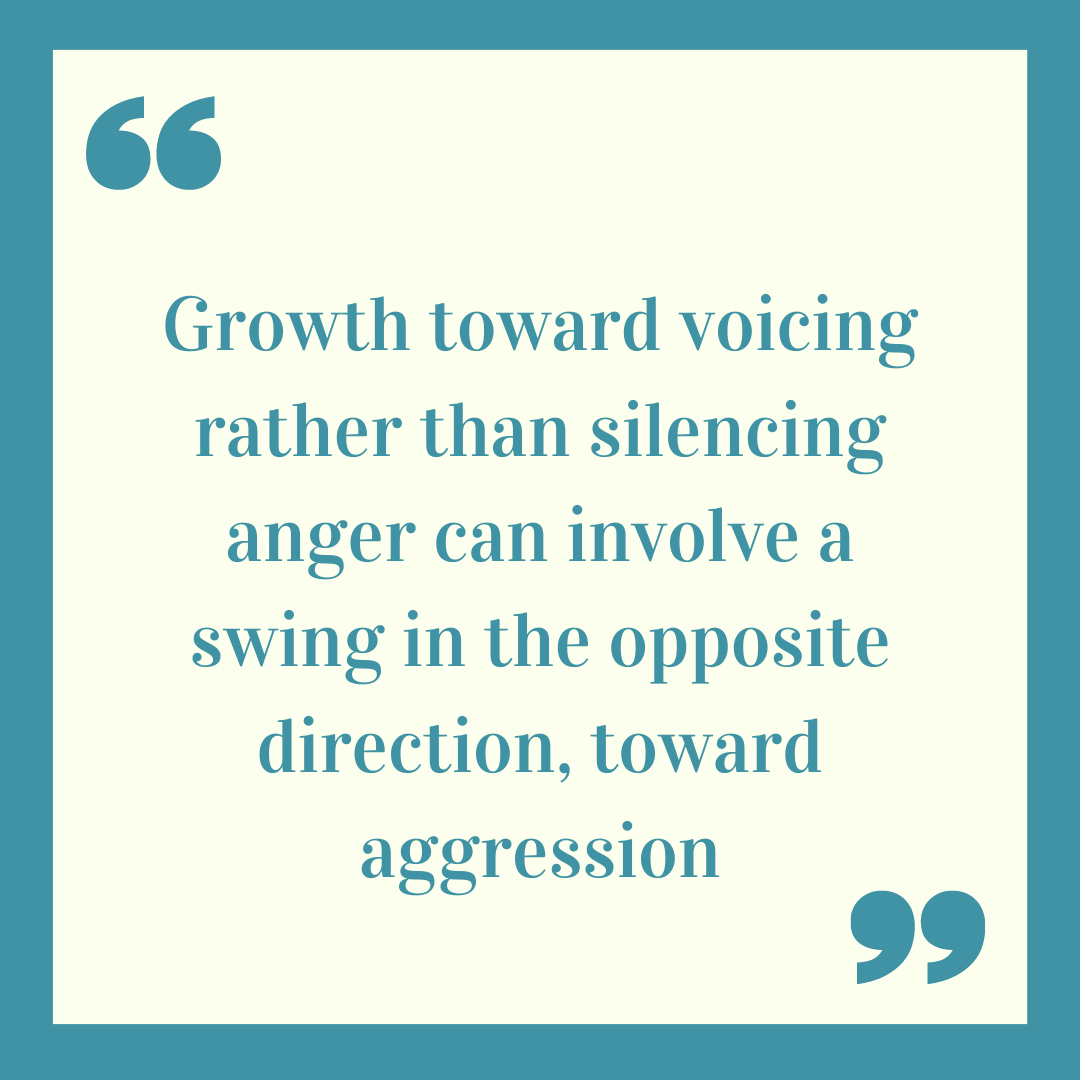

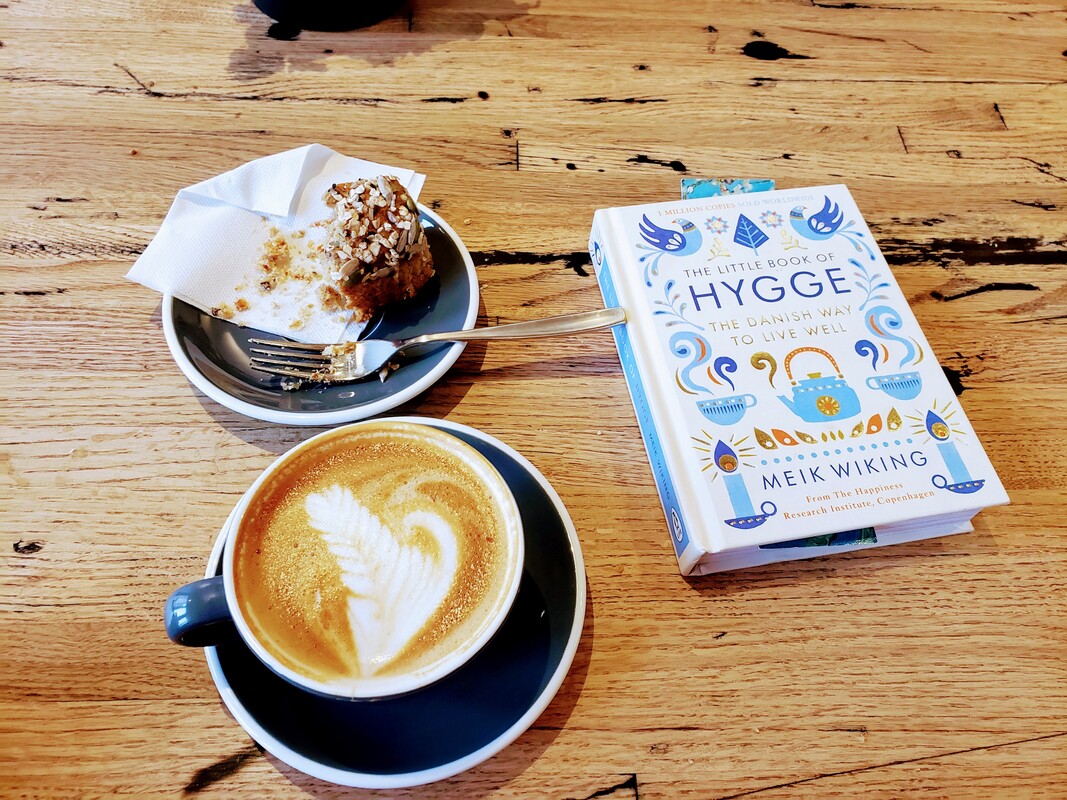

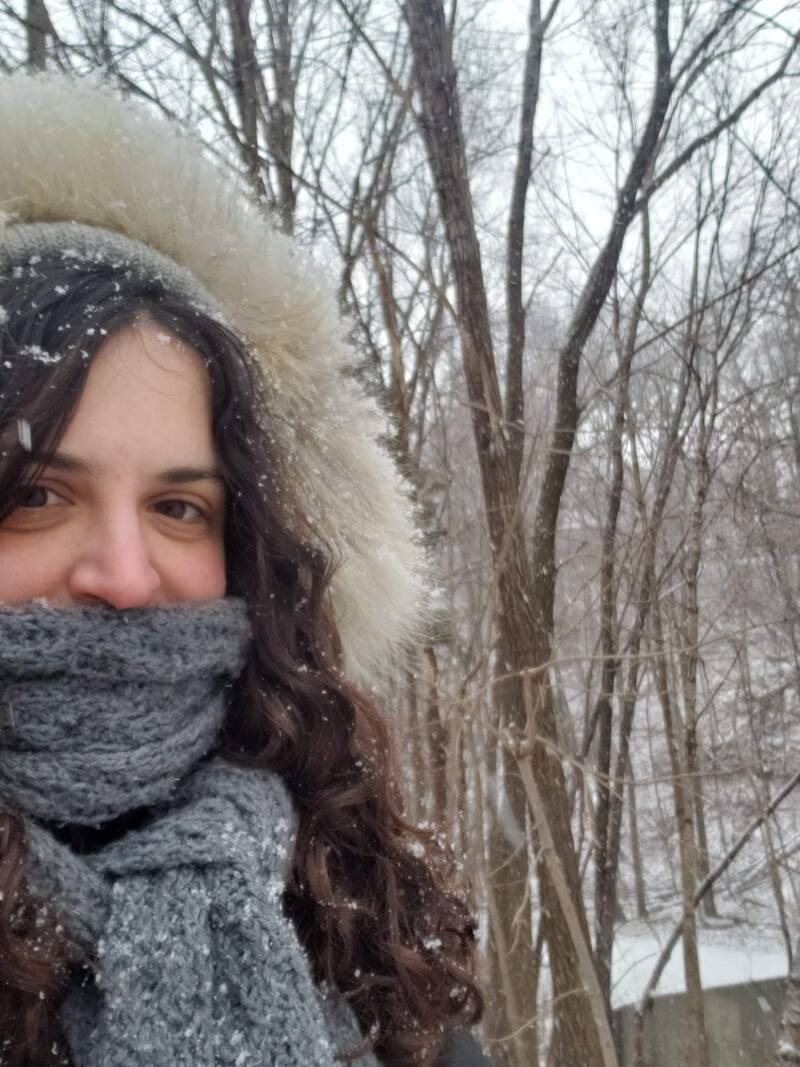
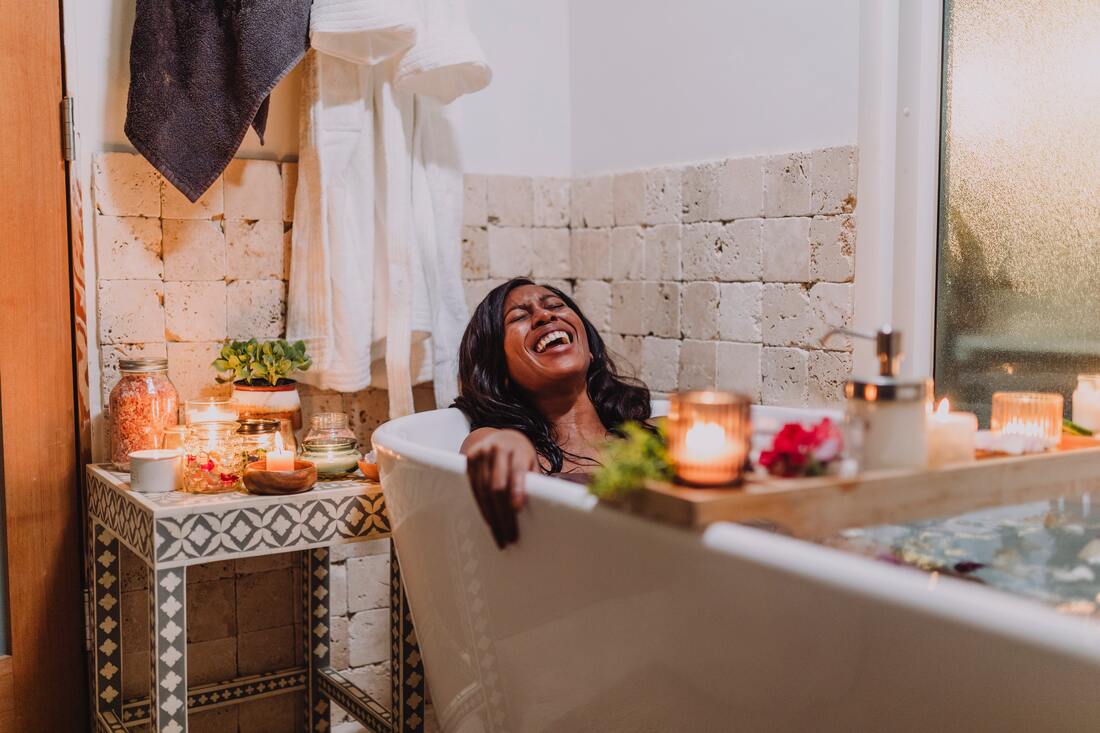

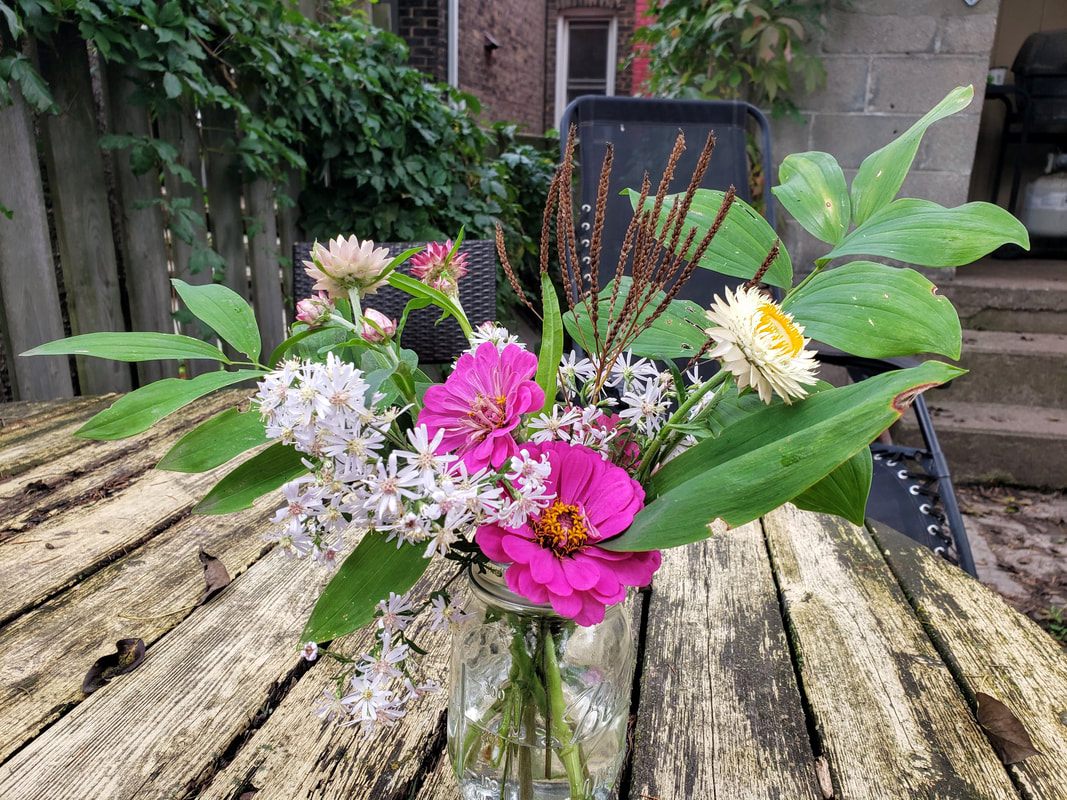
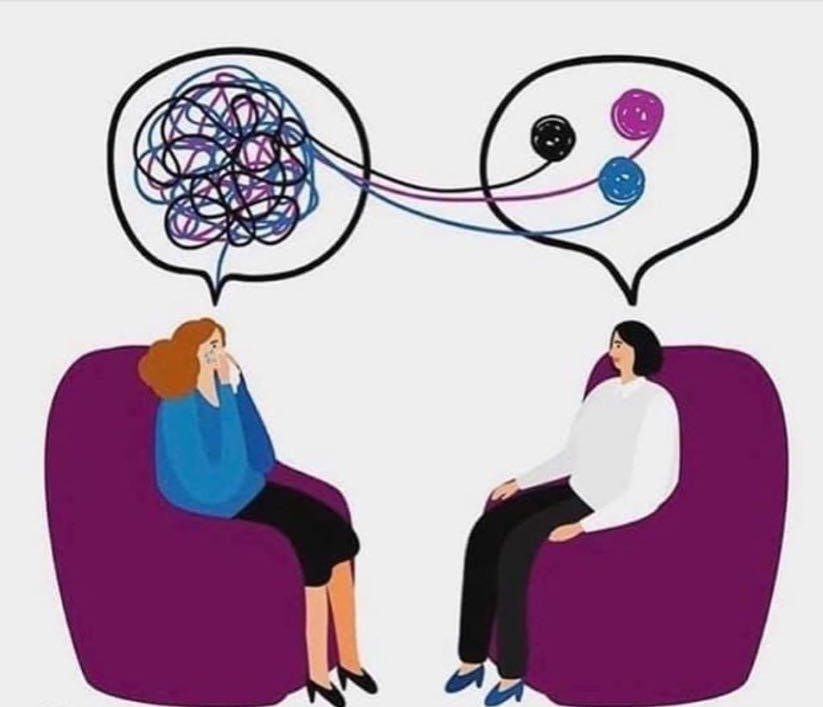



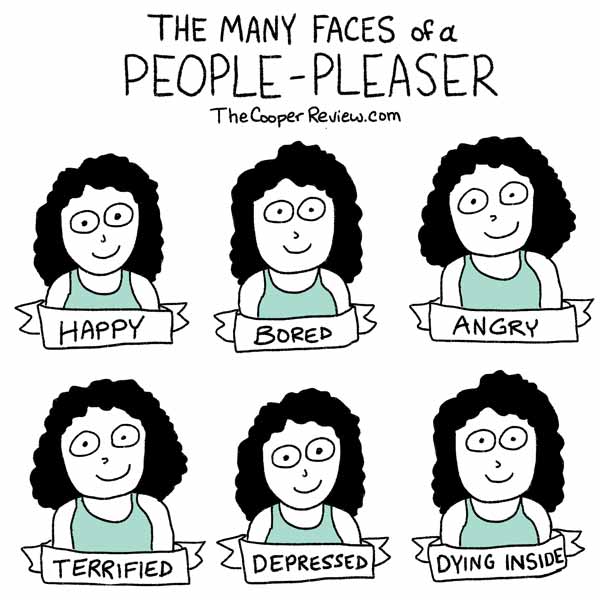
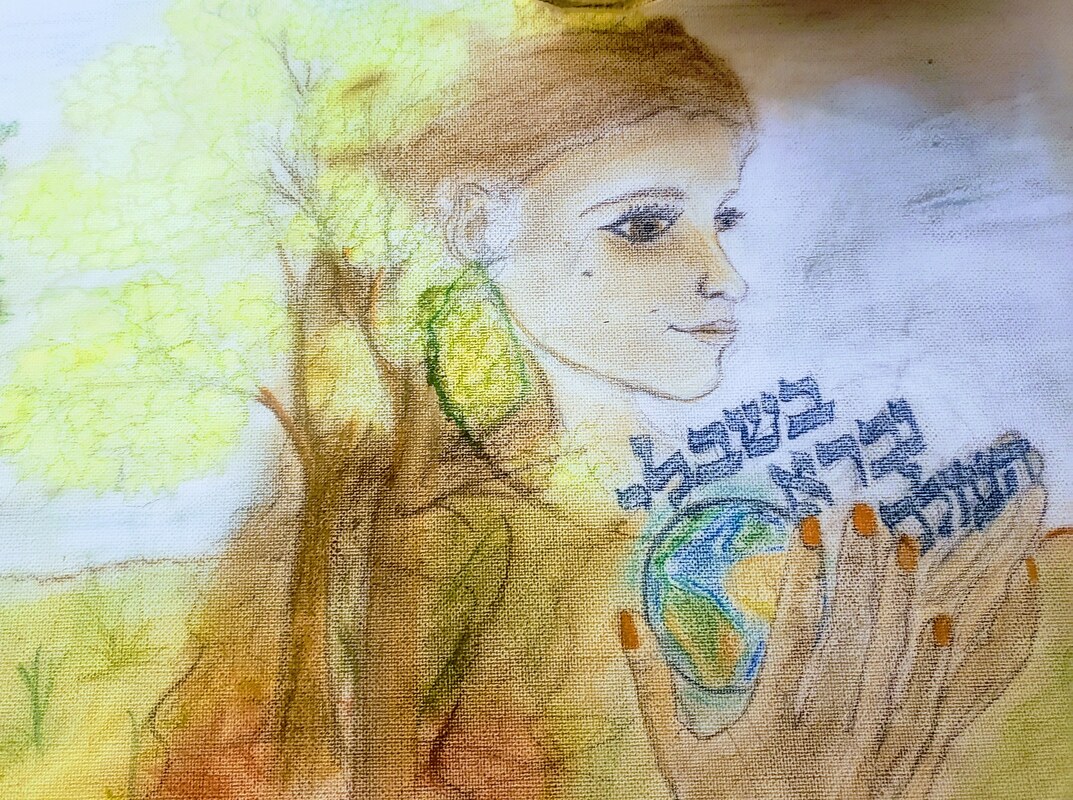
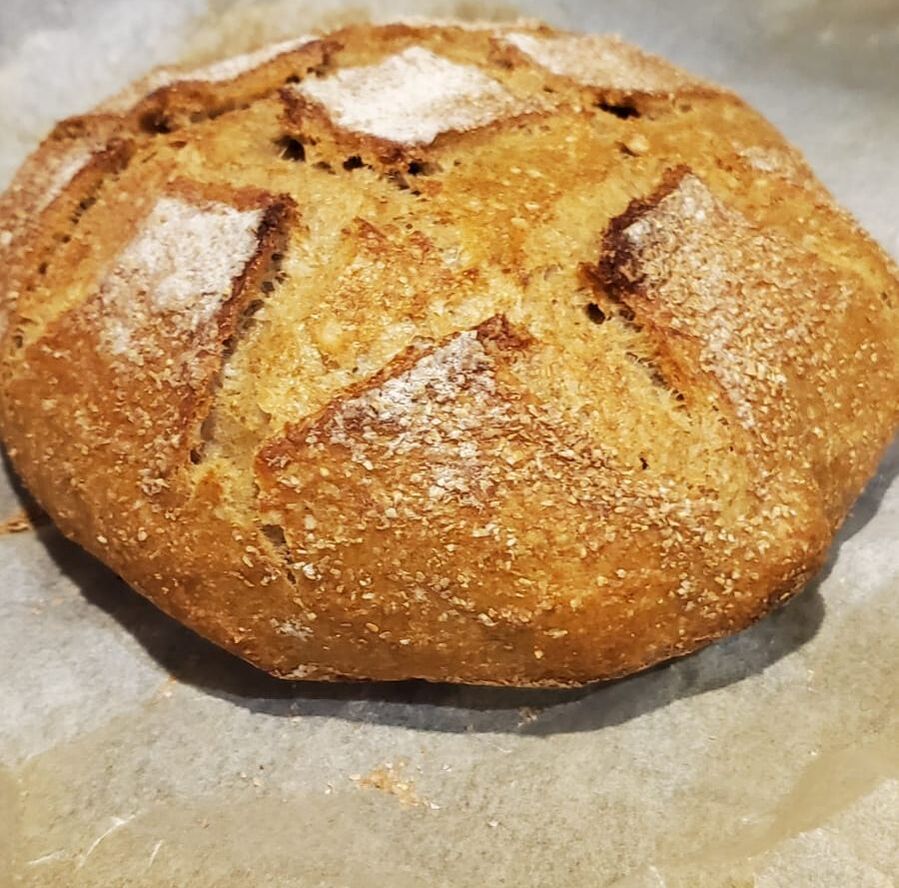

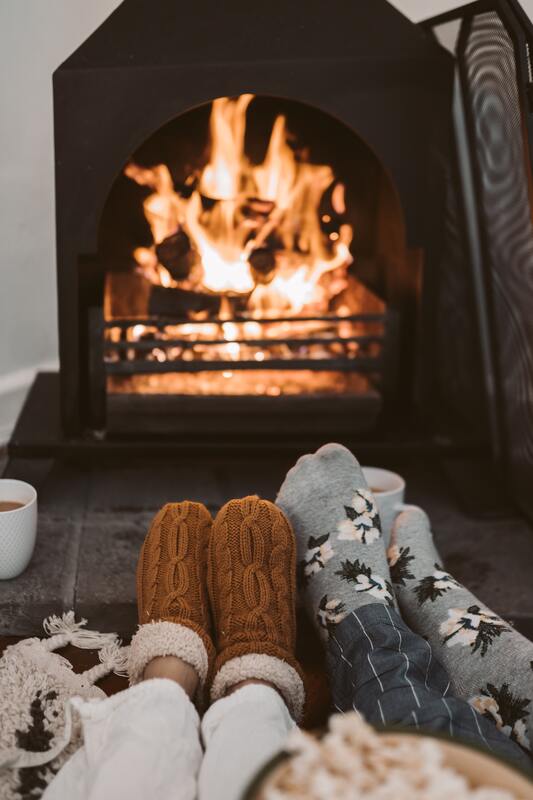
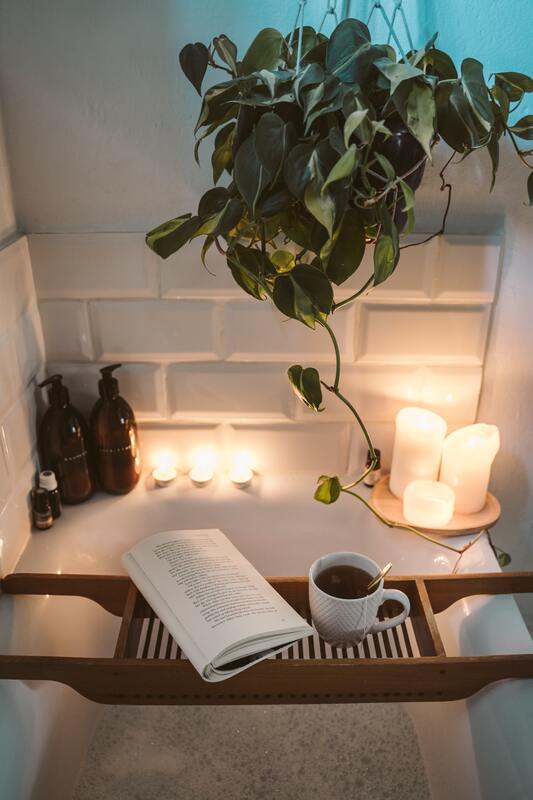


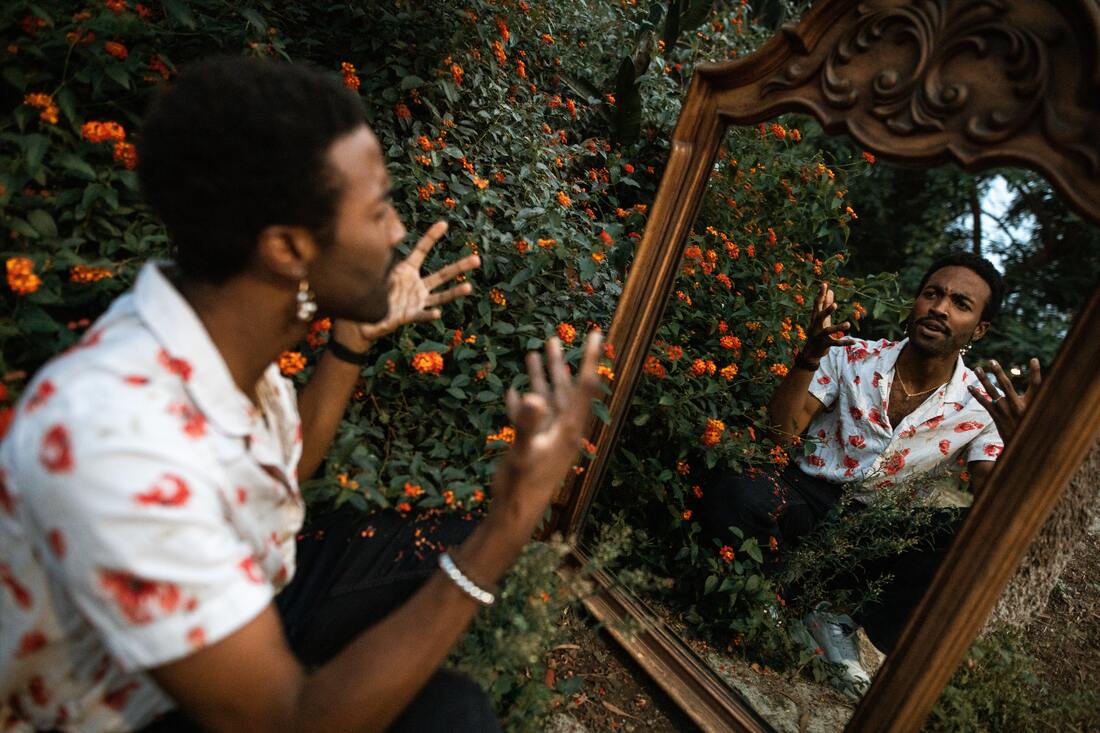


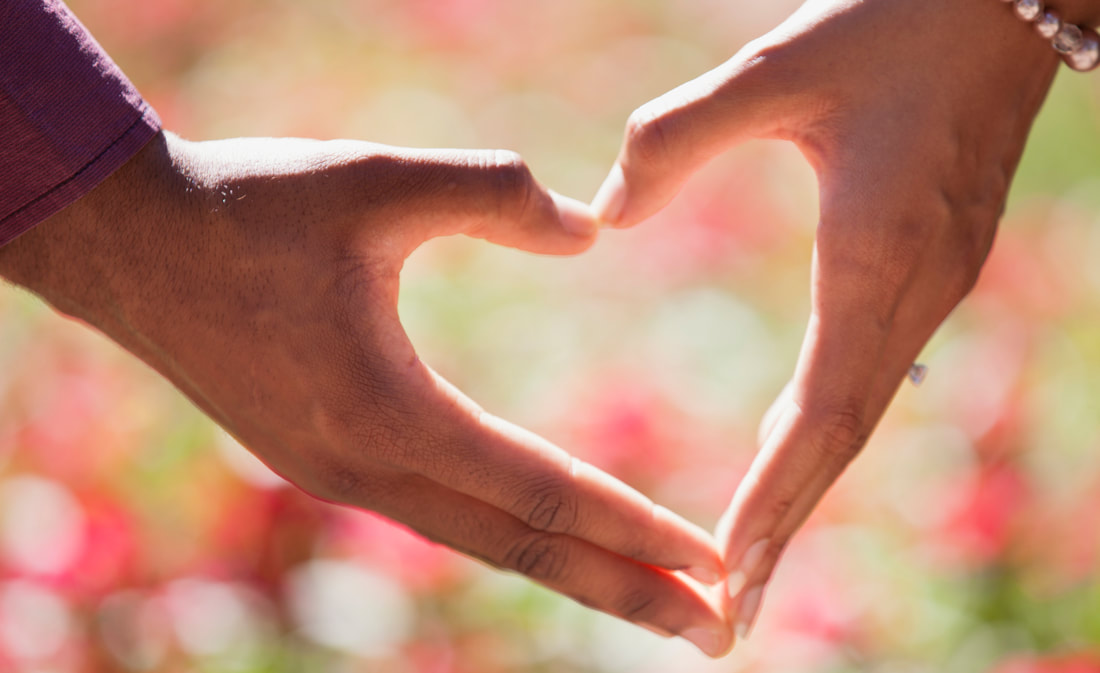
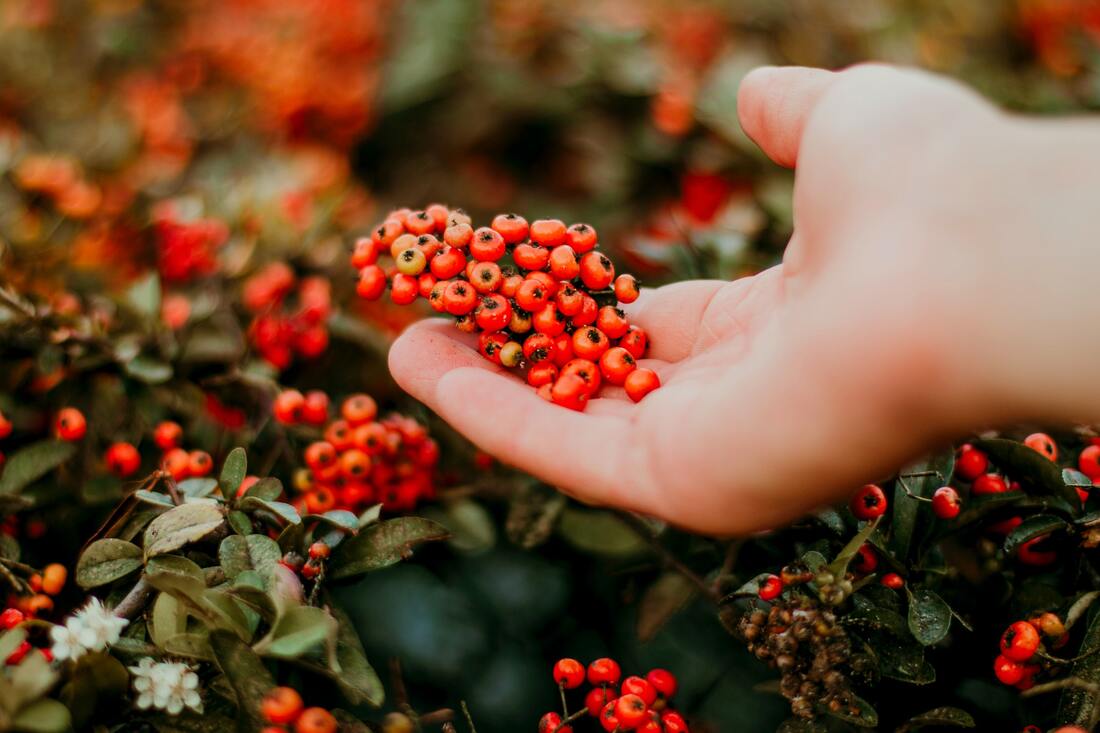

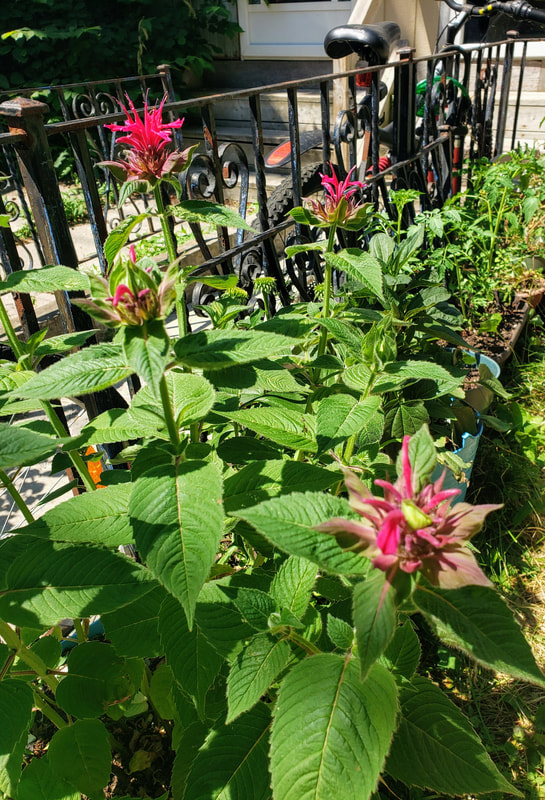
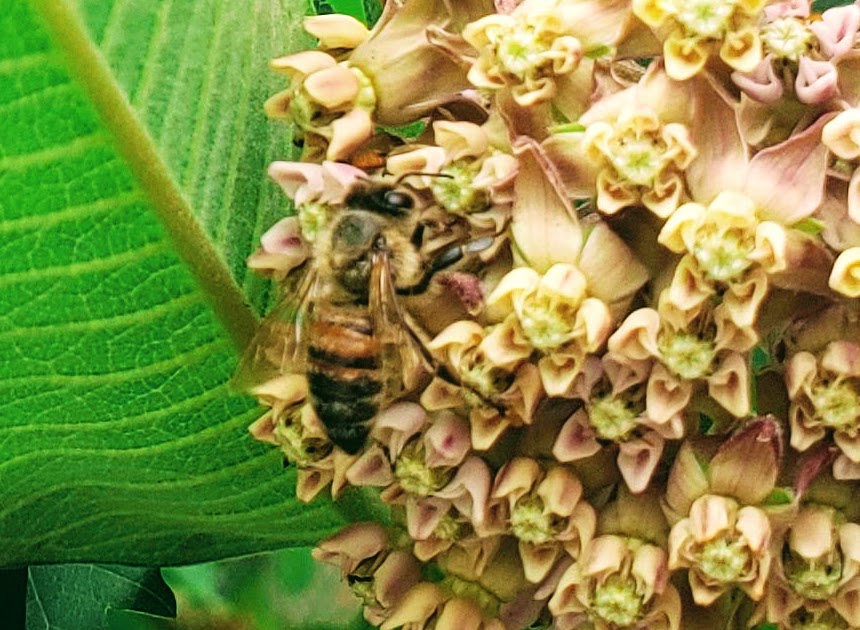
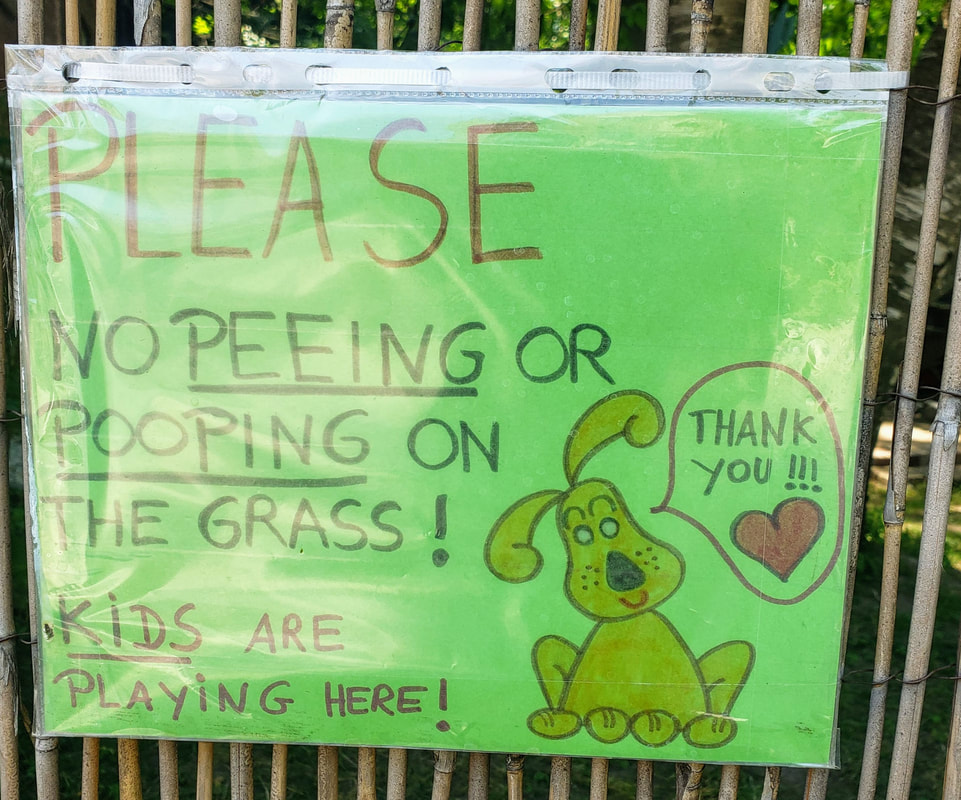





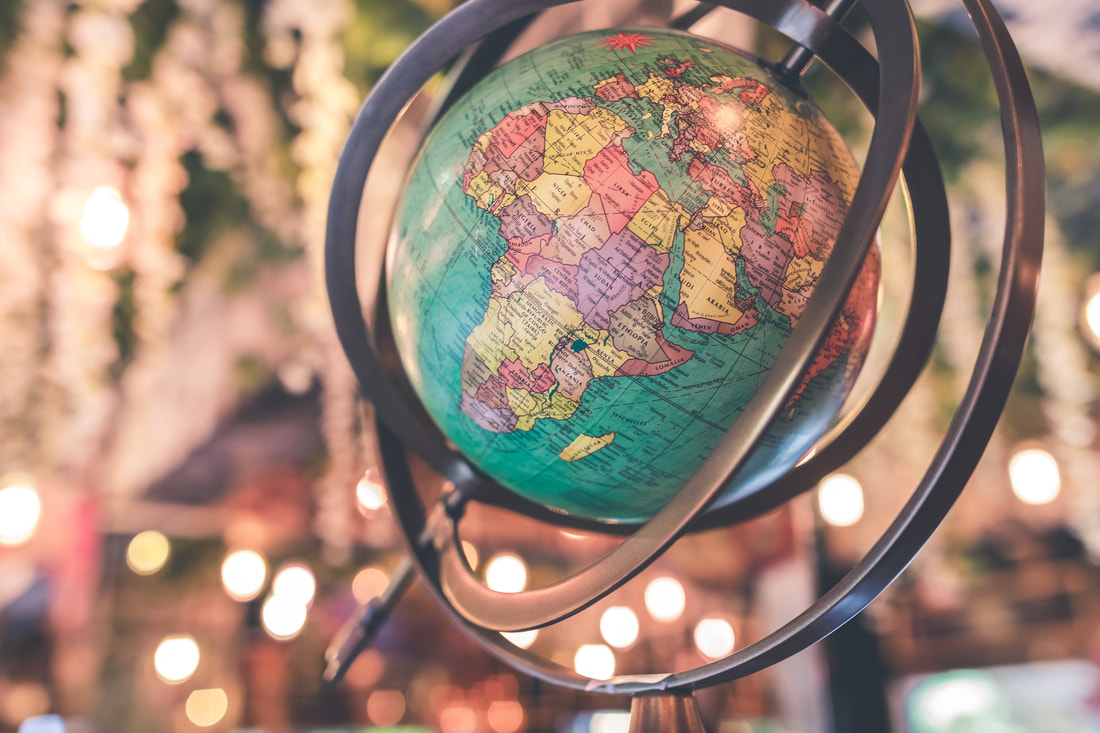

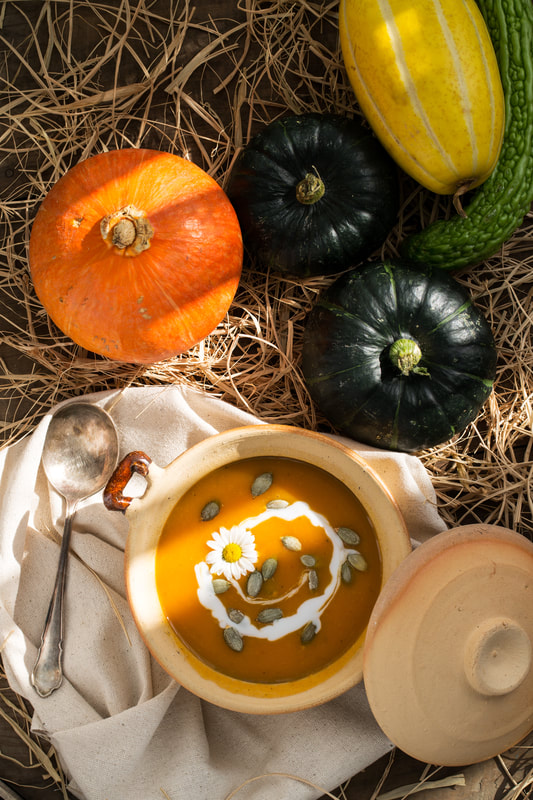
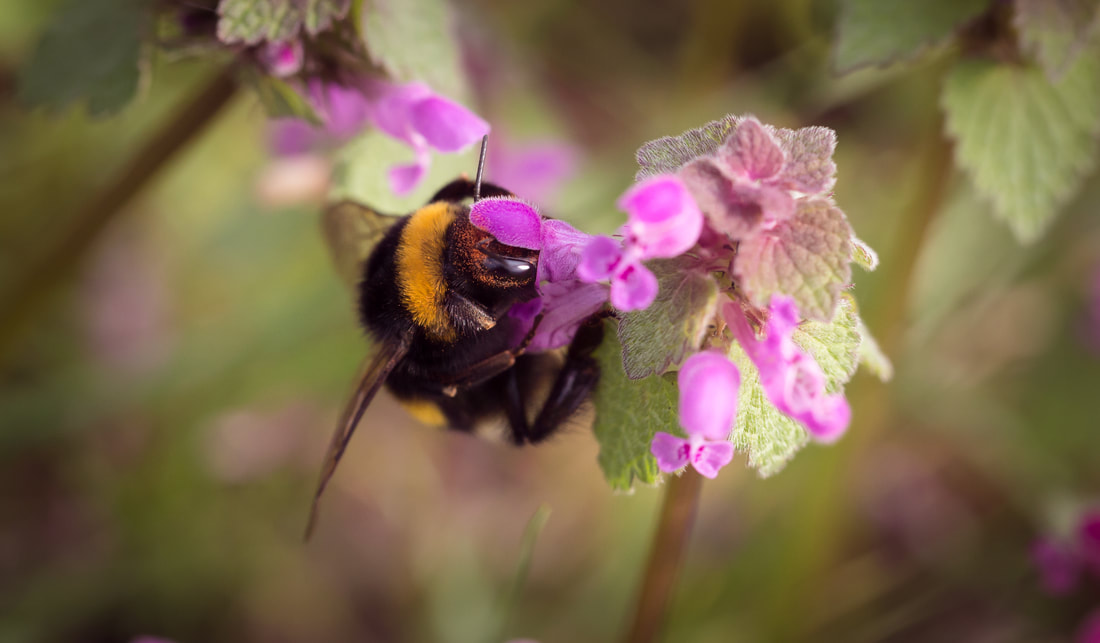

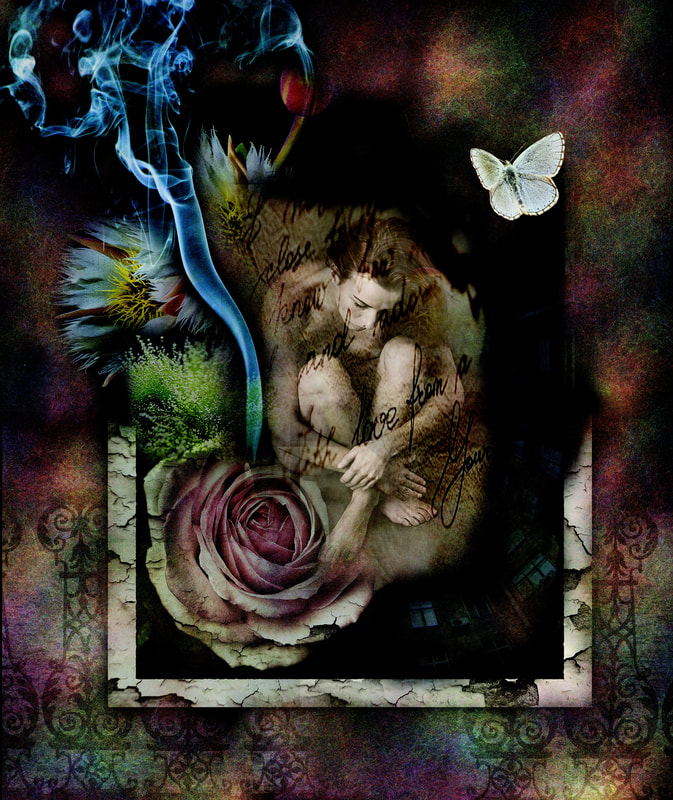
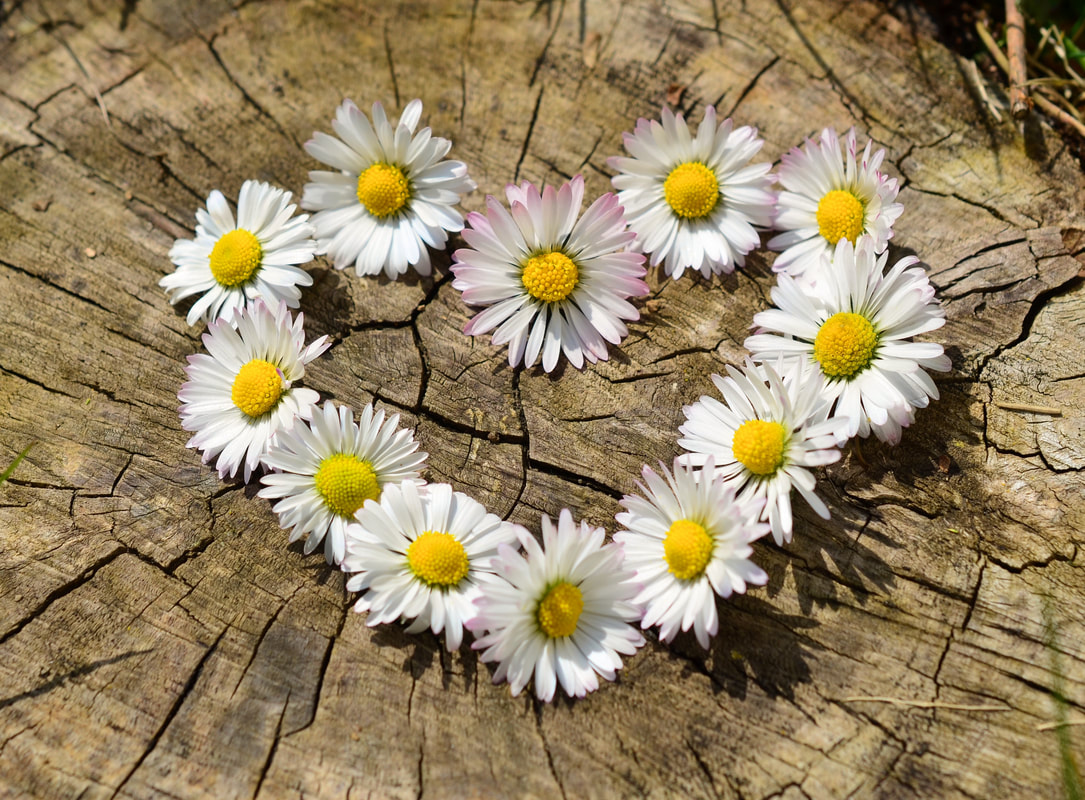




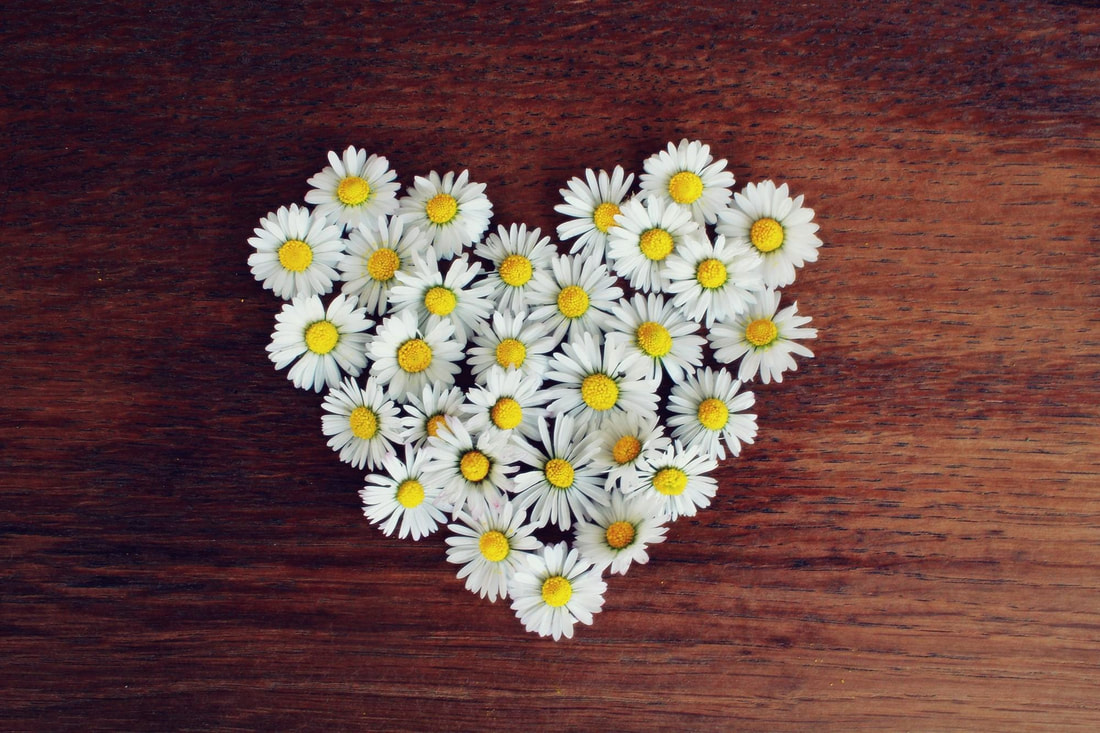

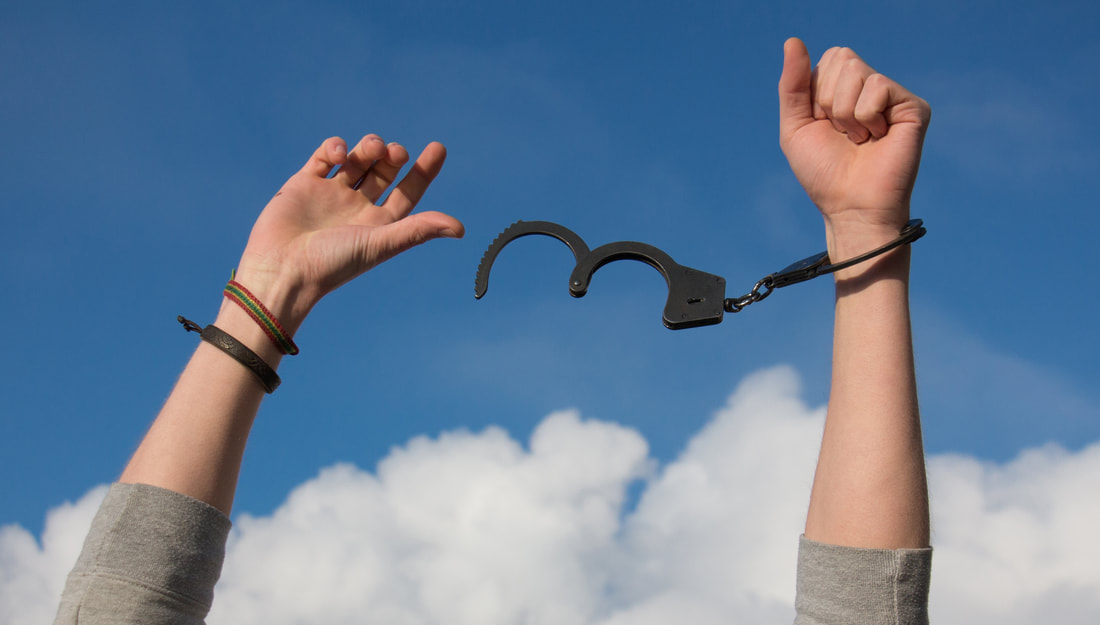

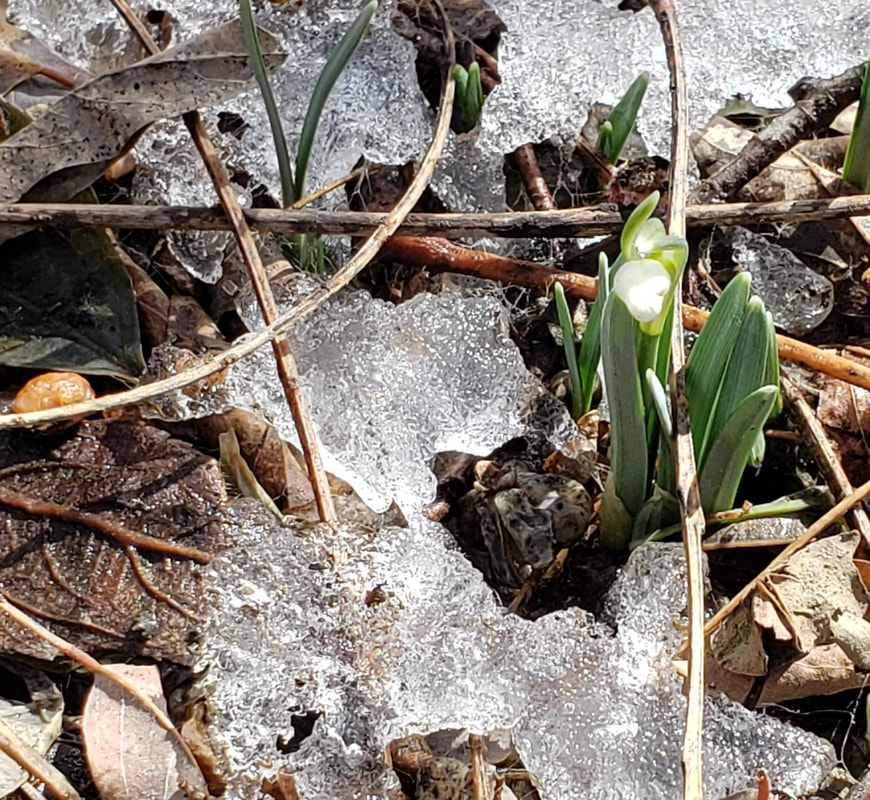
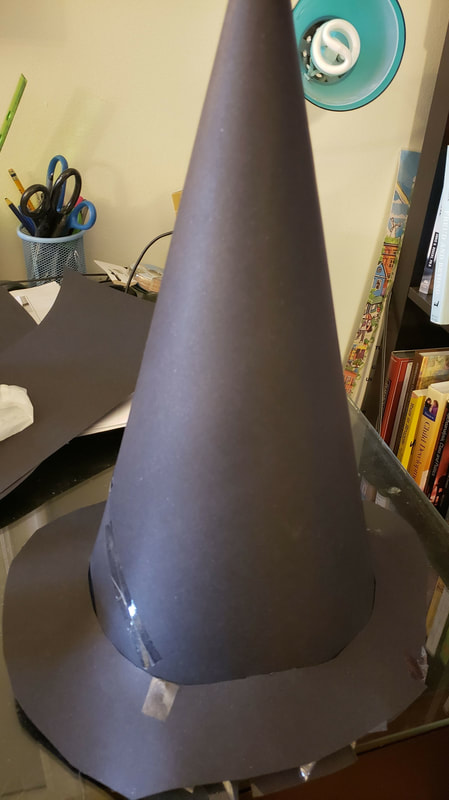

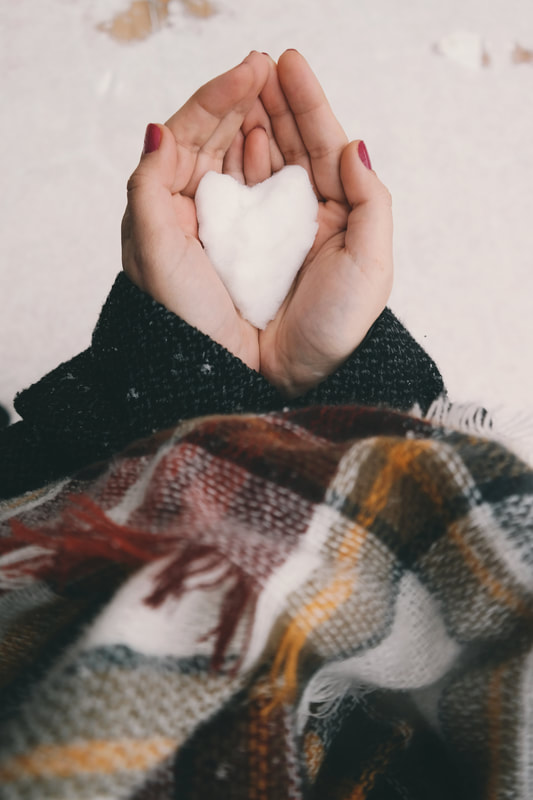
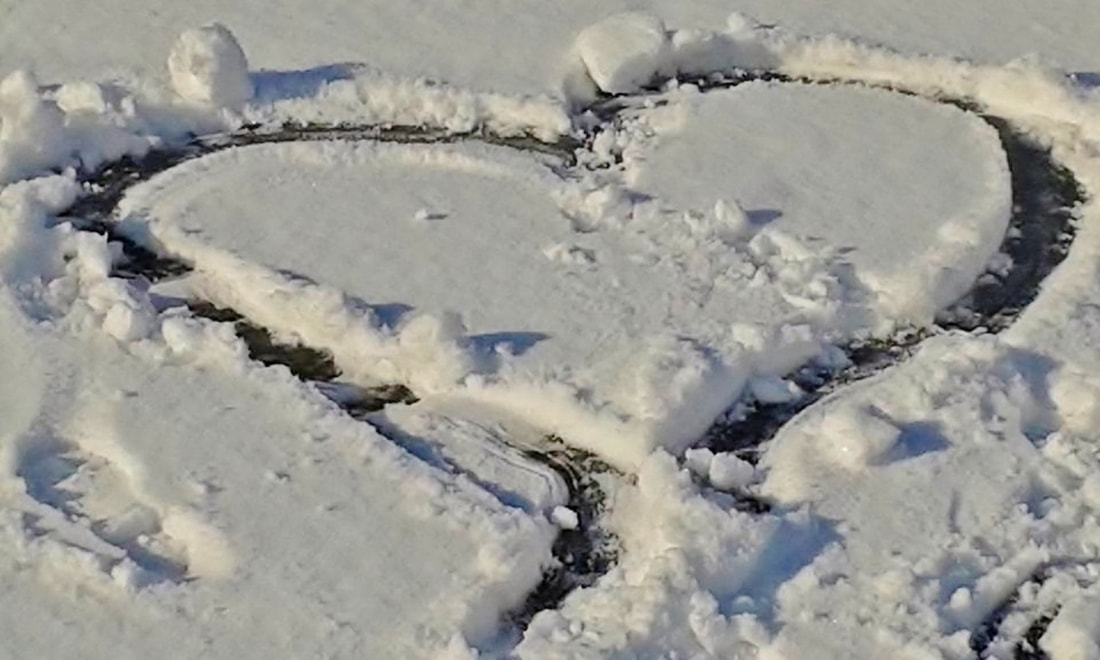

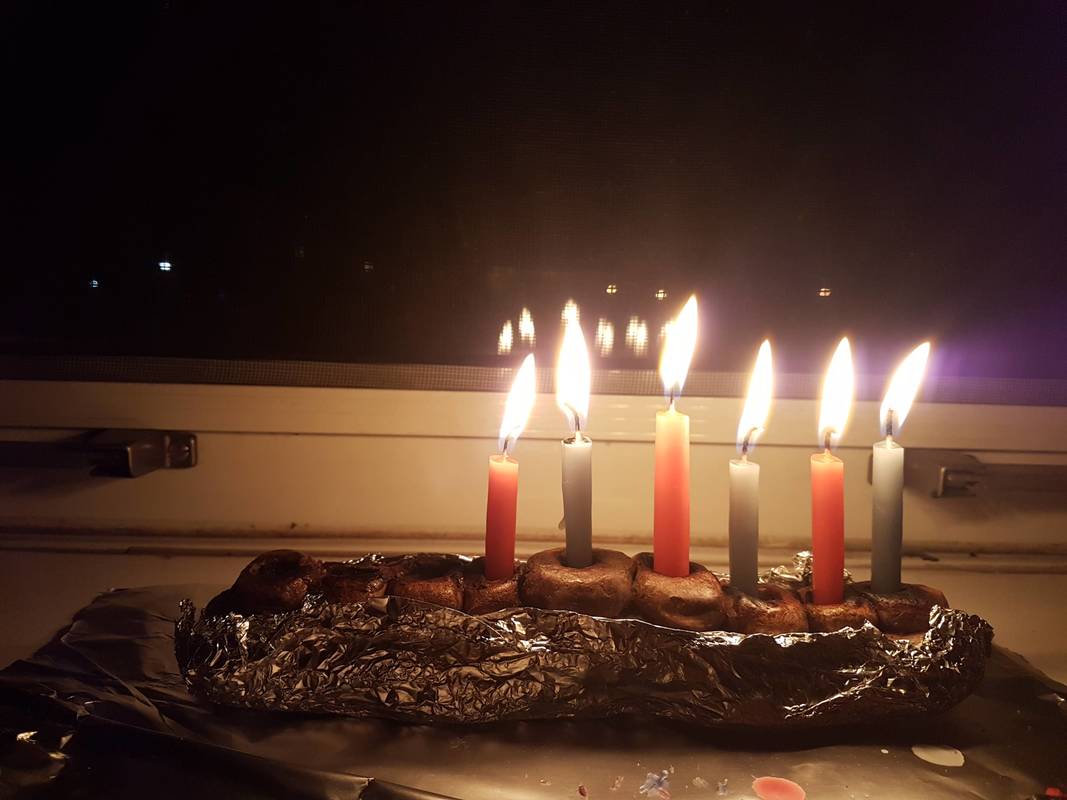
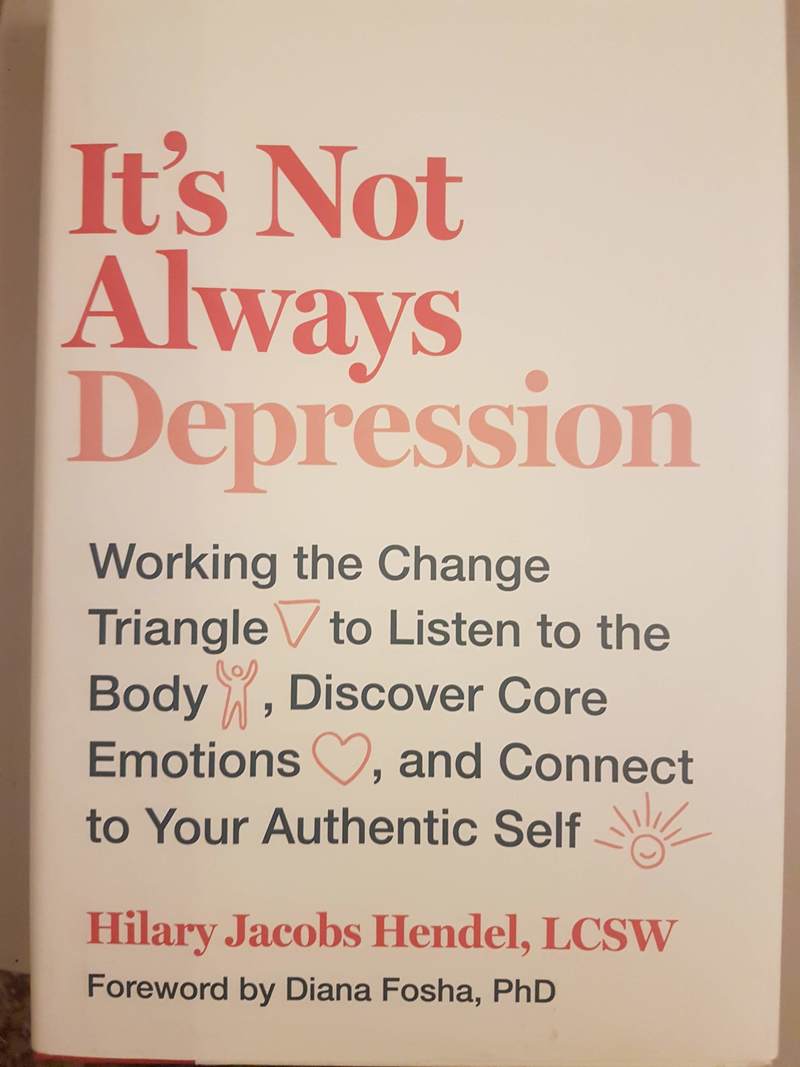
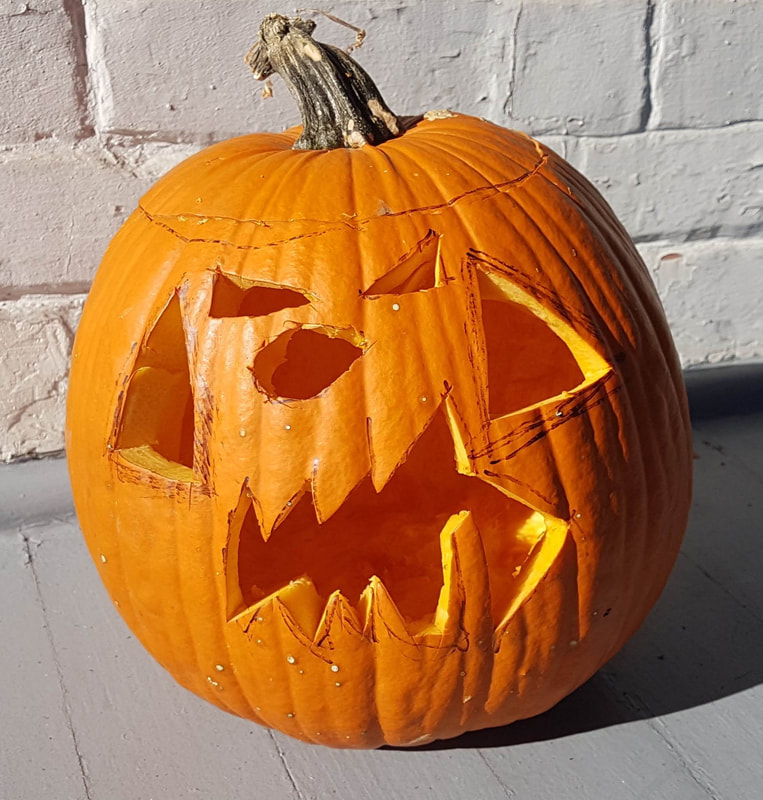
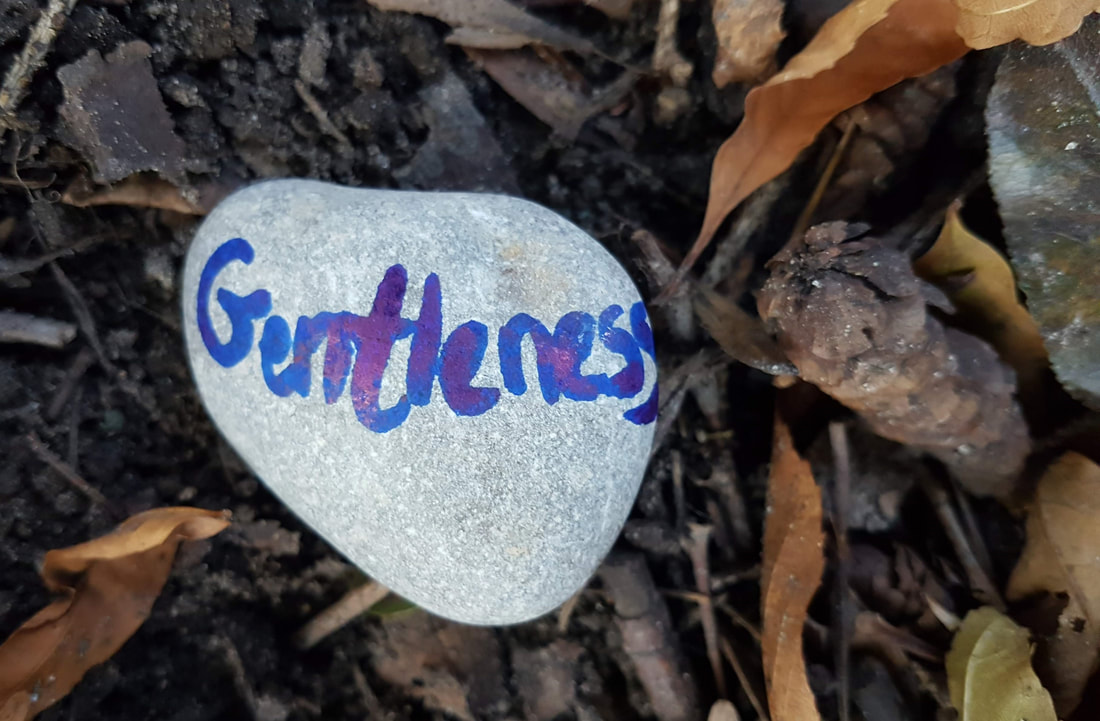
 RSS Feed
RSS Feed